#i just learned that word. jingoism.
Note
I guess CB fans already talk abt this a lot— or do they? tbh i dont rlly see much Cap comic talk from CB fans.. but tbh that's prob for the best b/c they are...... so bad, esp w/ this topic. they only had one decent story that had potential w/ WS in the aughts + the shieldra plot before going into their American BS —but nyways mayve its a good thing no one talks abt them bc Captain America comics were already not very good with the hydra-nazi thing but omg why am I finding out that the latest run dilutes/copsout the hydra origins even more....
It's rlly pmo b/c the hydra thing hasn't been treated well/properly ever but they retconned Hydra to be the original "big bad" and just a front for a group that precedes the nazis by decades 🙃🙃 and the amount of dogwhistles and poorly thought out historical references in the names/setup... ihate it!
Things like this r y this is the few times where i say the mcu version is better— up until like civil war or definitely afterwards —b/c at least they— until later on with Z3m0 —kept in mind that the villains are nazis 🙃 The amount of Cold War politics the Cap franchise— and tbh in the Black Widow side too once they started to retcon them together —throws in to make hydra some generic "anti USA" villain and sidestep the whole "hydra being nazis + part of the US government and keeping a major character as an enslaved WW2 POW as a major foundation of Cap mythos" thing. Now they obscure the origins of the hydra stuff even more and its so...... i guess theyre trying to make the whole Captain America schtick seem less bad if the nazi villains the story keeps downplaying/ignoring the impact of just keep getting made to be "less bad" over and over, but I hate it. And i hate even more how these types of stories littered all over the Cap mythos are seen as "not political" by a certain crowd, but theyre very political.it's just that the politics are so trash and distort serious historical references in service to American jingoist conception of history.
i have no idea how you ended up here. nonetheless iagree because captain america runs are just... so.. so... [vaguely gestures] and i hate the crowd surrounding it! i really like characters from the cap universe (sam/bucky/misty/nat) but it's literally impossible to read because it's so. so. so .. WEIRD! i think you're right bc back in the actual cap bucky run these topics were somewhat better handled? than the way they are now? and i don't want to blame everything on nick spencer's 2015 hydra cap thing but i will blame it all on it because oh my god the disservice that did to the way hydra is treated in these comics lmao. like you said they keep being like 'weeelll the nazis are *nooot so bad*'. like the red skull treatment they give the comics are so?? what?? hes a nazi?? why are you trying to get me to sympathize with the nazi?? I GET SUPER WEIRDED OUT WHENEVER I TRY TO READ AXIS FOR EVENT REASONS BC OF.. THE RED SKULL BEING WRITTEN SO SYMPATHETICALLY.. IM LIKE EWW I DONT LIKE THAT GET IT AWAY FROM MEEE. likewise i did try to read the other 2015 cap america run with sam but it also suffers of this same exact problem and it's SOOOOO HARD.
i read sentinel of liberty and symbol of truth recently and i swear to god i did not pay any attention other than the scenes were bucky was in AND EVEN THAT I HAVE SOME ISSUES WITH I THOUGHT SOME OF IT WAS A LITTLE WEIRD but. (SIGHS) . i also agree the mcu was.. fairly fine with this til fatws and everyone became a zemo loverweiogoudsigSDG IM GLAD I WASNT THE ONLY ONE WEIRDED OUT BY THAT?!?! dont even get me started on the subsection of mcu fans that make found family out of hydra members its very fucking weird. anyway. i think you might have gotten the wrong blog but nonetheless ive had these thoughts in my head for a few years now so thank u for this little bonding moment
0 notes
Note
Hey its been a while. Spektor-anon. Life got kinda crazy which is why i havent reached out to talk about how much i love mash (i love it very muchly) i watched thru the rest of it! Loved it!! Youre right tho, the show punishes hawkeye too much. Like i agree he was a self important self righteous dude who sometimes needed to be taken down a peg, but also hes self righteous and CORRECT. war bad. War bad!!! It rlly took me out when they had an episode where hawk has to like???? Apologize to a general or something for being too disrespectful like NO!!! Mash is supposed to be totally skeptical of the respect ppl thoughtlessly pay the military. Even when margaret started getting character development id always felt that while the show respected her careerism, for the most part the show took her military zeal to be sort of to her detriment. Like her competence and comittment to excellence in a male centered world is commendable but her jingoism and thoughtless obedience to order is a flaw- a flaw they personalize to her bad relationship with her dad. The show comes to the conclusion she needs to learn how to be less starry eyed and to get her self worth somewhere other than her father and i feel like it comes to that conclusion visavis her relationship to the military as well. Love that. So why punish hawkeye is my thing? Feels like a fumble in the antiwar show to shit on the antiwar guy for being too antiwar >:>[.
Also also gfa? Gfa! My beloved gfa!!! Hawkeye has a mental breakdown and no one is equipped to deal with it least of all bj? Exquisite. Ruining music for charles by indelibly associating it with war!! Amazing! (It really figures that he would only be capable of respecting an asian man if that asian man has command over western culture aka mozart, but i still think it deals a blow to his western elitism all the same which i count as a win) also amazing- margaret and charles's send off!!! Klinger and Soon Lee was heart healing. Finally in the very last episode mash gives us a little depth to korean characters. Thank god. I love klinger in love. I love their romance its so compelling. Also also also the mulcahy stuff was so so heart breaking and brilliant and i love it. I love that bj is the only one who knows! No one else knows!!! I love all these missed moments of connection. Mash rlly knows how to make the moments of connection (the mozart. The poetry book. The goodbye note) hit and it does it in part by also giving you moments of missed opportunity in spades (bj cant rlly support hawk the way he needs and he cant be honest. Mulcahy never heards hawks parting words and in turn hawkeye never knows that. And he never knows why. And everyone is parting ways mostly forever. And you as an audience get to know some of the side characters who never got any play before for a brief shining second and then theyre gone and you know they had a full life and perspective that you never got to see and never will aka that one nurse "i think ive had it" line)
Thank you for giving me my favorite show. And thank you for humoring me in your askbox as i talk about it. Very kind and silly and thoughtful of you. Very caring even to a stranger. Very mash xoxoxox
SPEKTOR ANON I MISSED YOU SO MUCH i hope you're doing alright rn
if i'm being fully honest i don't really remember the episode you're talking about - i recall a couple where hawkeye went head to head with a general and was forced to stand down or something like that but i don't think the show ever punished him for his antiwar position? the most its ever done was show him as someone who's swinging at windmills i think
margarets arc in that regard is so good though. far from perfect but still very very good
you're so right about the missed moments and i'm glad you liked gfa vvgfgfhfgh!! mash is so good at creating a sense of bittersweetness, its genuinely one of its best qualities. they're having fun watching a movie but the casualties are inevitably coming etc etc. and charles is just..... i know the music is the literal thing he loses in gfa but i like to interpret it as him losing his sense of self and his place in the world (charles class consciousness era)
also shoutout to bigelow (the "i've had it" nurse) woman of all time
thank you for coming to my askbox for all these months anon! i'm like..... actually emotional, it means so much to me that something i made out of love for mash helped you find it and love it too. i'm so happy it touched you as well.
i hope you come around again! i'm always here to talk about mash and im always happy to see you in my askbox
#long post#mash#i love you regina spektor anon and i'll miss you#also i made an hd version of the amv if you ever want to watch it
5 notes
·
View notes
Video
youtube
I marvel that I got to exist on this planet at the same time as Carl Sagan.
I think I felt this way as far back as 1980, when Cosmos was airing on PBS, and I couldn’t get why the nation was not drowning in Cosmos-mania, the way it had with Star Wars a few years earlier.
I mean, Star Wars was fun, with the “pew! pew! pew!” and the incest and all, but Cosmos was even more mind-blowing, and it was, like -- Real! Like, science and shit!!!
“May the Force be with you”? Banal.
“We are made of star stuff”? Third eye blasted wide motherfucking open!!!
As cringe as the posthumous lionizing of The Greatest Generation or Boomers can get, I have to concede that there was something damn special about a couple scoops worth of the folks who emerged from the post-war and counter-culture eras, when intelligence, inquiry, and reason had not yet been made forever unfashionable by the fuckbois of Madison Avenue.
Before genuine -- not performative -- principled, moral behavior and a healthy distrust of the military-industrial complex was recast as “naiveté” by the fucking Reagan Revolution.
I look around today, and I see high-quality public persons, no doubt. But we’ve all been raised in and conditioned by a different, more cynical and distracted culture.
A culture lacking, for example, the first-person experience of how opening the door even a crack to pro-business, neoliberal, “unleash the market” jingoism would lead directly and inevitably to the Facism2023™ that will sooner or later make its way into the Oval Office.
(Although “The Greatest Generation” did vote Reagan into office, so even the folks who actually lived through it once before, voted it in with a pride that was only outweighed by their willful ignorance.)
And that hard-won world, that unique recipe, gave us humans like Fred Rogers and James Baldwin and Kurt Vonnegut and Ursula K Le Guin and Bob Ross and a bunch more.
A culture that could produce artists and activists and thinkers like that seems, to those of us raised by TV and the internet to believe that the highest virtue a citizen consumer can aspire after is celebrity, almost cartoonishly improbable.
But it was (apparently) real, and it gave us the amazing, beautiful Carl Sagan: a scientist with the soul of a poet.
And when I see old clips like this, when I see how resolutely and comfortably my boy is just plain himself when appearing on the media of his day, how stoked he is to be sharing with us what he’s learned through rigor and study; and how his words are wise and full of the kindness, wonder, reverence, and spiritual awe that the MAGAchurch bros can only karaoke...
It makes me marvel that this was a person who actually existed, and that I got to share the planet with him for a while.
Wow.
0 notes
Photo
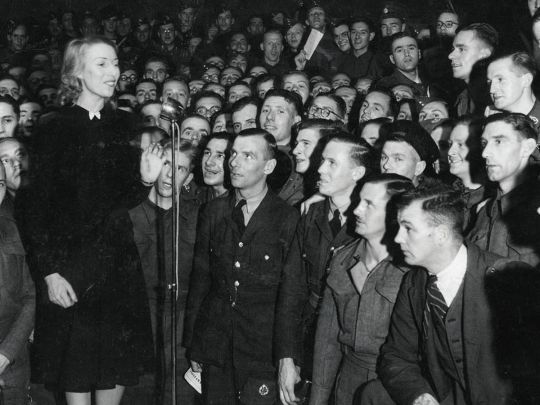
Music is so good for the soul, and during these hard times we must all help each other to find moments of joy.
- Dame Vera Lynn (1917-2020)
Dame Vera Lynn, the beloved British singer, died 103 years old on 18 June 2020. Surprise at her death is swiftly replaced by the sad realisation that it marks the end of a chapter in British history. Many of those who grew up with her music have died during the Covid-19 pandemic. How poignant that her death should come on the day that President Macron arrived in the UK to mark the 80th anniversary of General De Gaulle’s rallying cry to the Free French and to give the Légion d’Honneur to London, the city that weathered the blitz in 1940.
From the battlefields of France, the Netherlands, Italy and North Africa to the Far East, whenever soldiers gathered around a radio set or gramophone, the smooth vocal tones of Vera Lynn were sure to be heard.
It is impossible to gauge whether the outcome of the war was swayed by songs like ‘There'll Always Be an England’, ‘We'll Meet Again’, ‘(There'll Be Bluebirds Over) The White Cliffs of Dover"‘ and ‘A Nightingale Sang in Berkeley Square’.
But for countless men in uniform, the lyrics and the slim, wholesome young blonde woman who sang them seemed to offer a vision of what they were fighting for.
To modern ears, the words might sound corny but at a time when Britain stood proudly against the Germans, their patriotic appeal was irresistible.
Vera Lynn epitomised an archetypical, essentially decent Britishness, practical and fair-minded - notions which shone through the songs she sang.
Even her version of the German soldiers' favourite song, ‘Lili Marlene,’ managed to sound like a patriotic lament, a far cry from the darker sexual undercurrents implicit in the versions by Marlene Dietrich and Lale Andersen - ironically both of them anti-Nazis who became the German forces' sweethearts.

Vera Lynn's most famous song remains We'll Meet Again, recorded in 1939.
Lynn’s wartime popularity was boosted because of the song. The song’s appeal to love and stoicism - "Keep smiling through/Just like you always do/ Till the blue skies/Drive the black clouds far away" -- made it the perfect war-time anthem. It proved powerfully uplifting for departing soldiers, and it has endured as the defining song of the British campaign. The song re-entered the UK charts at No 55 amid the 75th anniversary celebrations of VE Day.
As she wrote later in her 1975 memoir, Vocal Refrain: “Ordinary English people don’t, on the whole, find it easy to expose their feelings even to those closest to them.” We’ll Meet Again would go “at least a little way towards doing it for them”.
In later years, the song, with its reminders of home and exhortations of courage, has become an indispensable part of national commemorations. And, with its swooping and strangely haunting melody, it has entered into popular culture. It forms an ironic accompaniment to the explosion of atom bombs in Stanley Kubrick’s Dr. Strangelove, or How I Learned to Stop Worrying and Love the Bomb (1964); it is deployed with alienating effect in the Pink Floyd song Vera (The Wall, 1982); and it provides the eerie aural backdrop to the Tower of Terror ride in Walt Disney World, California.
But when Lynn began singing it at the age of 22, she had little idea that she would be singing it for the rest of her life.
Indeed the song found favour again this year when Queen Elizabeth II, in a rare public address to the nation, urged Britons to remain strong during the coronavirus lockdown.
"We should take comfort that while we may have more still to endure, better days will return: we will be with our friends again; we will be with our families again; we will meet again," the monarch said.
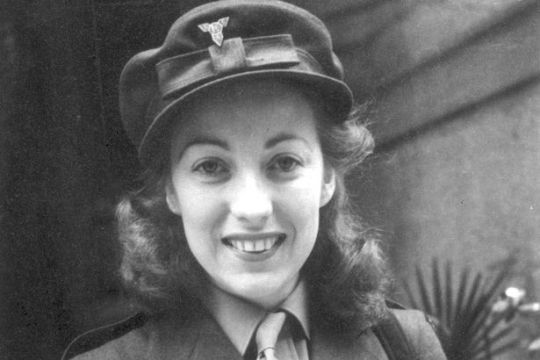
Vera Lynn was born in London's East End on March 20, 1917 as Vera Margaret Welch.
She began singing in local clubs at age seven and joined a child dance troupe, Madame Harris' Kracker Cabaret Kids, at 11. By 15, she was a teenage sensation as a vocalist with the Howard Baker Orchestra.
She adopted her grandmother's maiden name Lynn as her stage name, making her first radio broadcast in 1935 with the Joe Loss Orchestra.
She worked with another of the great names of the pre-war period, Ambrose, whose clarinettist and tenor sax player, Harry Lewis, she was to marry. The couple had one child, a daughter.
In war-time, Vera Lynn came into her own, hosting a BBC radio programme, "Sincerely Yours", appearing in a forces stage revue, and making three films.
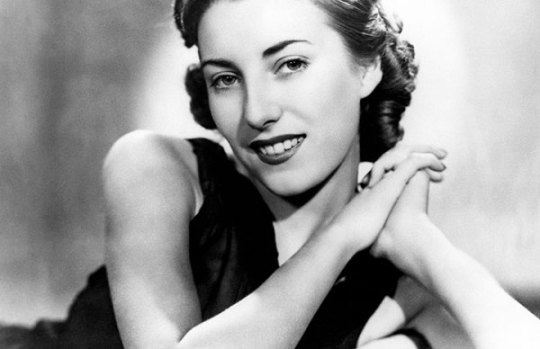
So what did Vera Lynn have that propelled her to stardom during the war, when she became the “forces’ sweetheart”? Youth primarily. She was in her early 20s when war broke out – Elsie Carlisle, the iconic singer at this time, was in her 40s and recorded very little during the war, while Gracie Fields, who was astonishingly popular in the 1930s, had the temerity to marry an Italian and sat most of the war out in North America.
The country was aching for a new female singing star and Vera Lynn – youthful, toothily wholesome rather than glamorous, and with an innate modesty that suited an austere and dangerous age that had no time for displays of ego – fitted the bill. She had a powerful, bell-like voice – at times she almost recites the words and employs oodles of vibrato to underscore the emotion of her songs – that was perfect for a singalong. It is when the audience joins in with her songs that you get a lump in the throat.
She came to represent so much, especially to the service personnel she entertained tirelessly during the second world war. She visited Burma, Egypt and India to give concerts for troops stationed there, an act of courage that should not be underestimated. These were difficult, dangerous journeys and not for nothing was she later awarded the Burma Star. She symbolised resilience and indefatigability, embodying a strength of character that transcended mere art. Nazism had no chance against this winsome, optimistic, joyful yet tender young woman.

Lynn gave up singing after the war but was persuaded out of retirement in 1947 and began a whole new international career, with appearances in the United States in 1948.
She became the first British artiste to have a US number one with "Auf Wiedersehen, Sweetheart", her most successful record, in 1952. However Vera Lynn's career foundered in the rock and roll era and she cut back on public appearances.
Artistically, it must have been infuriating to be forever associated with the wartime struggle and she did attempt to move on, recording a few Beatles numbers in the 1960s and even making a country disc in 1977. But nothing could shift the way she was seen by the public: a symbol, quintessentially British, of that unimaginably long, bleak, ultimately triumphant wartime struggle; an icon frozen in time.
She accepted her status as a living museum of wartime music and culture with customary good grace. “I never thought the ‘forces’ sweetheart’ tag would stay with me,” she told the Radio Times in 2014, “but it has, hasn’t it? I thought it would last for the war period, then I’d just be another singer. Of course I’ve never minded that everybody always connects me with that time. It was so important.”

For decades, she was a beloved figure at celebrations to mark the anniversaries of the June 6, 1944, D-Day landings in France or VE Day, the end of the war in Europe on May 8, 1945.
Her last public performance came in 2005, at the 60th anniversary celebrations for VE Day in Trafalgar Square. She performed a snatch of We’ll Meet Again, and told the crowd: “These boys gave their lives and some came home badly injured and for some families life would never be the same. We should always remember, we should never forget and we should teach the children to remember.”
She was awarded an OBE in 1969, and made a dame in 1975, for her charity work. She has given her name to her own breast cancer and child cerebral palsy charities, and has also worked with charities for military servicepeople, including Forces Literary Organisation Worldwide (Flow)
In 2009, at the age of 92, she became the oldest living artist to make it to No 1 on the British album charts, with a greatest hits compilation outselling the Arctic Monkeys.
During the build-up to her 100th birthday in 2017, Dame Vera said she found it "humbling" that people still enjoyed her songs.
The Queen wrote to her: "You cheered and uplifted us all in the war and after the war, and I am sure that this evening the blue birds of Dover will be flying over to wish you a happy anniversary."
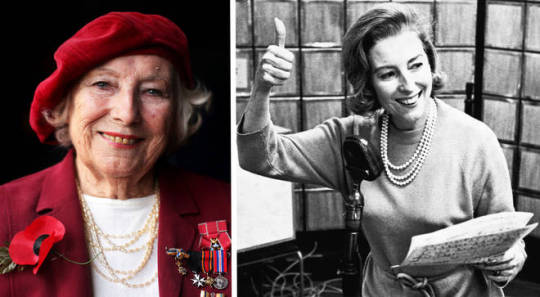
Her songs spoke to people caught up in war, trying to respond to its emotional extremes as best they could. They encapsulate fellowship and battling through, not jingoism, for all the flag-waving that accompanied her appearances at commemorative events. “We’ll meet again, don’t know where, don’t know when.” The lyrics could not be more banal, yet her genuine spirit invested them with deep humanity. As HM Queen Elizabeth II herself understood, what keeps us going in times of war and pandemic is the thought that we will be reunited with our loved ones, when the blue skies drive the dark clouds far away.

RIP Dame Vera Lynn
We’ll meet again....
#vera lynn#quote#life and death#second world war#music#singer#britain#femme#icon#history#forces sweetheart
534 notes
·
View notes
Text
How 9/11 Became Fan Fiction Canon
Every fictional character you can think of has experienced 9/11 in fanfiction.
A Clone Wars veteran with two lightsabers is on United Airlines Flight 93 and prevents it from crashing. Ron and Hermione get caught up in the chaos as the towers fall. Buffy the Vampire Slayer and her friends watch the attacks unfold on TV from Sunnydale. We have spent 20 years trying to process what happened on 9/11 and its fallout, and that messy process can be tracked through the countless, sad, disturbing, and sometimes very funny fanfiction left across the internet.
Many of the fanfics written in the weeks and months following the 9/11 attacks seemed to directly respond to the news as it happened, processing the tragedy in real-time through the eyes of characters they loved. In the absence of a canon episode where Daria Morgendorffer paid respects to those lost, writing fanfic about these characters also experiencing trauma helped fans cope.
One YuGiOh fanfic published on fanfiction.net in May 2002 could have been ripped exactly from what this writer experienced that Tuesday morning. “It started as a normal day,” user Gijinka Renamon wrote. Yugi and his friends were in school, where their teacher informed them of the attacks and sent everyone home from school.
“After reading people’s 9/11 fics, I decided to write my own, and put a certain character in it. And Yugi and his pals were my first choice,” the author's note reads, explaining the connection they felt to United flight 93 and the World Trade Center attacks. Given that they lived in Pennsylvania, and “it’s close to New York, I felt really sad about it.”
Stitch, a fandom journalist for Teen Vogue, told Motherboard that this reaction to 9/11 is not at all uncommon in fandom.
"Fandom has always been a place that positions nothing as 'off limits,'" she said. "Historical tragedies like the Titanic sinking and atrocities like… all of World War 2 show up regularly across the past 30 years of people creating stories and art about the characters they love. So, on some level, it makes sense that 9/11 and the following 20-year military installation in the Middle East has joined the ranks of things people in different fandoms turn into settings for their fan fiction."
Reactions depicted in a handful of Buffy the Vampire Slayer fanfics published in the weeks after the attacks ring a little truer to the characters. “Tuesday, 11th September 2001,” written by Anna K, almost echoes the lyrics from “I’ve Got a Theory,” one of the songs in the musical episode that aired in November 2001. “We have seen the apocalypse. We have prevented it. Actually, we’ve prevented quite a few. So we know what they look like,” they write, before taking a darker turn. “They look a lot like…New York today.”
Killing demons and vampires doesn’t phase the Scooby Gang, but when preventable human death is brought into the picture, it’s gut wrenching.
“What am I supposed to do…When I can’t do anything to save the world?” Buffy cries into Spike’s chest, watching the attacks unfold on TV in a fanfic the author described as being “about feeling numb and helpless.”
In “Blood Drive,” Kirayoshi writes about Buffy and her friends saving a van full of donated blood meant for victims of the attacks from a group of thirsty vampires. One Buffy the Vampire Slayer fic even takes a blindly patriotic turn, where noted lesbian witch Tara McClay helps Xander hang an American flag from the window of the magic shop to make Anya feel better.
Experiencing 9/11 as a young teenager was overwhelming not just because of the loss of life. Almost immediately after the event itself, it was as if the entirety of American culture re-oriented itself towards an overtly jingoistic stance. As we get distance from the attacks, seeing the tone of television and movies from the early 2000s is jarring, and some have gone viral on Twitter. In the world of pop music, mainstream musicians like the Chicks, formerly known as the Dixie Chicks, were blacklisted from the radio while Toby Keith sang about putting a boot up the ass of terrorists. On the Disney Channel, a young Shia Labeouf reading a poem he supposedly wrote about the events. The poem concludes with the line, "it's awesome to be an American citizen."
In a world so completely saturated with this messaging, it is not surprising that fanfic authors started including 9/11 in their work so soon after the event. Even The West Wing had a strange, out of continuity, fanfic-esque episode where the characters reacted to 9/11. In some cases, it made sense that the characters in the stories would be close to or a part of the events themselves.
"For characters like John Watson or Captain America, the idea works to an extent," Stitch told Motherboard. "In the original Sherlock Holmes works and the 2011 BBC series, Watson had just returned from Afghanistan. For Captain America and other Marvel heroes, 9/11 was something that was addressed in-universe in The Amazing Spider-Man volume 2 #36. Technically, 9/11 is 'canon' to the Marvel universe."
In “Early Warning: Terrorism,” a fanfiction for the TV show Early Edition in which a man who mysteriously receives tomorrow's newspaper, predicting the future, avoids jingoism, but tries to precent 9/11 from happening. This fanfic remains unfinished; it’s unclear if the characters successfully prevent 9/11 in this retelling.
Largely in fanfic from the era just after 9/11, when many young authors were trying to emotionally grapple with it, the characters don't re-write or undo the events themselves. It's this emphasis on the reaction to tragedy that colors the fanfiction that features 9/11 going forward.
Although fanfiction authors have been writing about 9/11 consistently since soon after the event, whenever that fanfiction reaches outside of its intended audience, it looks bizarre.
A screenshot of a Naruto 9/11 fanfic on the Tumblr subreddit comes without any context, or even more than two lines and an author's note. It’s impossible to suss out if this falls into the category of sincere fanfic without the rest of the piece or a publication date, but modern-day commenters on the Reddit thread see it as classic Tumblr trash.

Screenshot from r/Tumblr
“Bin Laden/Dick Cheney, enemies to lovers, 10k words, slow burn,” one user joked in the replies, underscoring the weirdness of Naruto being in the Twin Towers by comparing it to a What If story about Cheney and Bin Laden slowly falling deeply in love.
It’s hard to tell how much of the 9/11 fanfic and fanart starting a few years after the attacks is sincere, and how much of it is ironic, and trying to make fun of the very concept of writing fanfiction about 9/11.
A 2007 anime music video (in which various clips, usually from anime, are cut together to music) that combines scenes from The Lion King with Linkin Park’s “Crawling” and clips from George Bush’s speeches immediately after the attacks feels like the perfect example of this. Even the commenters can’t seem to suss out if this person is a troll or not.
There’s no way that My Little Pony: Friendship Is Magic 9/11 fanart could be serious, right? Especially if the description pays tribute to “some of the nation's most memorable buildings,” and features five of the main characters as child versions of themselves. The comments again are split between users thanking the artist for a thoughtful remembrance post, and people making their own headcanon for why Twilight Sparkle is surreptitiously absent from the scene.
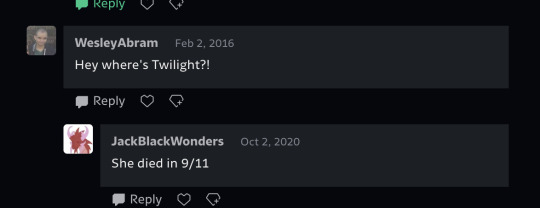
Screengrab via DeviantArt
There’s Phineas and Ferb fanfic that combines a 9/11 tribute concert with flashbacks to Ferb being rescued from the towers as a baby, written on the 10th anniversary of the attacks. It jumps from introspection to lines like, “‘Quiet Perry the Platypus. I’m trying to listen to these kids singing a 9/11 tribute.’”
The author's notes make it more likely that they meant for this to be a tribute piece, but it doesn’t quite make sense until watching a YouTube dramatic reading of it from 2020, fully embracing the absurdity of it all.
“For me, 9/11 is synonymous with war. It completely changed the course of my life," Dreadnought, the author of a Captain America fanfic Baghdad Waltz that sees Steve Rogers and Bucky Barnes fall in love over the course of the war on terror, told Motherboard. "It’s the reason I joined the military, and I developed deep connections with people who would go on to deploy to Afghanistan and Iraq. These very much felt like my generation’s wars, perhaps because people I graduated high school with were the youngest folks eligible to serve at the time.”
Dreadnought told Motherboard that although they didn't deploy, their career has kept 9/11 and the trauma from it in their mind. After seeing that people who fantasize about Steve and Bucky getting together seemed particularly interested in reading fanfiction that related to 9/11, they decided to try their hand at it.
"I had to do something with all of that emotionally, and I’m admittedly a bit emotionally avoidant. So I learned through fic that it’s easier for me to process those feelings and the knowledge of all the awful stuff that can happen in war if I can turn it into something creative," Dreadnought said. "Give the feelings to fake people and then have those fake people give the feelings to readers!"
To Dreadnought, who is a queer man, the experience of researching and writing this was more cathartic than they first expected, especially as a way to navigate feelings about masculinity, military culture, and queer identity. But they said the research they did, which included watching footage of first responders at ground zero, was what helped them finally process the event itself.
"It was like a delayed horror, and it was more powerful than I expected it would be." Dreadnought said. "When I was eighteen, I was pretty emotionally divorced from 9/11; I just knew I wanted to do something about it. So coming back to it in my 30s while writing this fic, it was a very different experience. Even the research for this story ended up being an extraordinarily valuable exercise in cognitively and emotionally processing 9/11 and all of its second and third order effects."
Fanfiction that features 9/11 provides an outlet for people who still grapple with the trauma from that day. But Stitch warns that the dynamics of fandom and how it relates to politics can also create fiction that's less respectful and more grotesque.
"With years of distance between the stories written and the original events of 9/11, there seems to be some sort of cushion for fans who choose to use those events as a catalyst for relationships—and Iraq and Afghanistan for settings," Stitch said. "The cushion allows them room to fictionalize real world events that changed the shape of the world as we know it, but it also insulates them from having to think about what they may be putting into the world."
The tendency of turning these events into settings or backgrounds for mostly white, male characters to fall in love has the unintended effect of displacing the effects that the war on terror has had on the world over. Steve and Bucky might fall in love during the war on terror, but they would also be acting as a part of the American military in a war that has been criticized since it started. Fanfic writers in other fandoms have come under fire for using real world tragedy as settings for fic before. In the aftermath of the 2010 Haiti earthquake Supernatural fanfiction about the actors Jensen Ackles and Jared Padalecki going to the island to do aid became controversial within the fandom. There have also been fics where characters grapple with the death of George Floyd that is written in a way that displaces the event from the broader cultural context of race in America.
"A Captain America story where Steve Rogers is a 'regular' man who joins the US Army and 'fights for our freedom' post-9/11 is unlikely to deal with the war’s effect on locals who are subject to US military intervention," Stitch said. "It’s unlikely to sit with what Captain America has always meant and what a writer is doing by dropping Steve Rogers into a then-ongoing conflict in any capacity."
After enough time, “never forget” can even morph into “but what if it never happened?” A 19k+ word Star Wars alternate universe fanfic asks this question, wondering what would have unfolded if someone with two lightsabers was on United Flight 93. This fic, part of a larger fanfic series with its own Wikia, considers what would have happened if Earth was a military front in the Clone Wars.
In this version of events, a decorated general who served in the Clone Wars is able to take back control of Flight 93 before it crashes, landing safely and preventing even more tragedy from happening that day. In the end, all of the passengers who made harrowing last calls to their loved ones before perishing in a Pennsylvania field survive thanks to the power of the Force, and are awarded medals of honor by President Bush.
Twenty years after the attacks, it’s painful to think about what would have happened if people got to work 15 minutes later, or missed their trains that morning. There weren’t Jedi masters deployed to save people in real life, but for some of the fanfic writers working today, the world of Star Wars might feel just as removed as the world before September 11, 2001.
Fiction serves as a powerful playground for processing cultural events, especially generational trauma. The act isn't neutral though; a decade's worth of fanfiction that takes place on or around 9/11 shows how our own understanding of a traumatic event can shift with time.
How 9/11 Became Fan Fiction Canon syndicated from https://triviaqaweb.wordpress.com/feed/
7 notes
·
View notes
Link
The Untold Story of Fahrenheit 451
Those who know me know I’m a little obsessed with dystopian fiction. Yet I often find people are surprised when I say Fahrenheit 451 is one of my favourite books of all time. For many this book was either a little boring or not that great. The biggest complaint is one that, in my opinion, is highly reductive: ‘the only message of the book is that censorship is wrong’.
So many of Fahrenheit 451’s messages sadly remain untold stories. It’s rich in astute observations and couched in a beautiful language that sprawls across what is actually a rather enthralling plot. There’s so much more than simply burning books.
If 1984 warns against militant jingoism, Fahrenheit 451 warns against that one might call ‘jingleism’. There’s no better way to convey what I mean than with the ending of a speech from our antagonist, Captain Beatty:
“‘Books cut shorter. Condensations. Digests. Tabloids. Everything boils down to the gag, the snap ending.’
‘Snap ending.’ Mildred nodded.’”
The inhabitants of this society have very limited attention spans where all they care about is the snap ending. And as if to prove his point, the wife (Mildred) of our protagonist (Montag) repeats only his last two words. Mildred—along with everyone else in society— lives in a world of jingles: a world of catchy expressions, of short sharp snap endings.
Beatty acknowledges that boiling everything down to the gag results from the proliferation of entertainment and the population boom. With more people and more entertainment, time pressures squeeze entertainment to a pulp. From the pulped pile of books emerged attention-grabbing, simplistic jingles. What’s disturbing is less the abstract potentialities this represents, but the concrete realities it mirrors: this is hardly an unfamiliar story. In Australia, one immigration policy was simply the three word slogan, “Stop the boats”. What makes this so dangerous is that it is presented without any nuance or rational argumentation.
People often don’t follow leaders or policies because they’re good—but because their jingle rouses up a mob mentality. In an analysis of Trump’s speech, linguists have found a particular prevalence of repetition and polarisation—out with external discussion and nuance, in with forceful catchphrases and divisive black-or-white viewpoints.
Bradbury warns against a populace cognitively incapable of tuning in for anything longer than the snap ending—for the catchphrases. They haven’t the ability to hear nuanced arguments, they can only hear the jingle.
Politically, poisoning its inhabitants with jingleism allows the society to be utterly repressed. As Beatty goes on to explain in his characteristically wonderful way, one need only “whirl man’s mind around so fast under the pumping hands of publishers, exploiters, broadcasters, that the centrifuge flings off all unnecessary, time-wasting thought”. And with thought out of the way, Beatty and the rest of the leadership becomes unaccountable— people are not only unable to think for themselves, but they’re incapable of engaging with anything which isn’t catchy.
Everyone in the society becomes reduced to the mental capacity of an infant, and the rulers can do what they want. The extremely stupid population simply don’t engage with politics—they have no awareness, never mind any say.
It’s tempting, as with much dystopian fiction, to frame this in Orwellian terms—the big bad oppressive authorities reduce the population to shrivelled wrecks to cement their power. But there’s no explicit authoritarian or morally flawed goal underlying all of this. Bradbury himself claims it’s “less about Big Brother and more about Little Sister”. Contrary to the reductionist claims I so often hear, this isn’t really a story of the political elite exploiting the masses via censorship. In fact, this is a story where the masses subjugate themselves in the name of happiness— something we, as much as they, value. And that is the real reason this is so scary.
Bradbury’s society is full of people who have corroded their own mental capacities, stopped thinking, and thrown themselves into chains. This regression, of course, is symbolised by the banning and burning of books; books, after all, are a symbol of thought and of patience. Most disturbingly of all, we learn that “‘the firemen are rarely necessary. The public itself stopped reading of its own accord.’” Authoritarian oppression is not required—society represses itself.
Total annihilation is the ending to this particular tale. Sadly, such an ending doesn’t seem so far from reality. Lockdown is our own dystopia and has shown us how dangerous ignorance can be. But again, people wrongly appropriate the military themes of 1984 to Fahrenheit 451. In 1984, war was a constant, purposefully forced upon the cultural consciousness. But in Fahrenheit 451, we barely see the war. The people are like pacified babies—incapable of thought and emotion, they are utterly ignorant of the threat.
The most powerful message is the problem with jingleism on a personal scale. What is humanity worth if not for thought and emotion? The characters of Fahrenheit 451—with the exception of the charming Clarisse, discerning Beatty and a few others—are utterly vapid. When presented with poetry, Mildred’s wife and her friends burst into tears. They sit all day in a room with 4 massive TV screens for walls, and at night they use “little Seashells” in their ears. Bradbury would be rolling in his grave at the development of earphones, iPhones, and virtual reality.
Television, for Bradbury, represented the short-term anaesthetic pleasure that leads to an inescapable unhappiness. It’s the easy way out; the choice not to love. Partially from a fear of pain and partially from the evolutionary need to pay attention to the loud and the bright, we choose to bury ourselves in click-bait YouTube, mind-numbing TV series, and attention-grabbing headlines. Beatty—as we’ve come to expect— summarises nicely: “‘Life becomes one big pratfall, Montag; everything bang, boff, and wow!’”
Soon, people lose the ability to sit down for a few hours to read a good book. As we fill our lives with more and more ostentatious entertainment, we neurologically lose the ability to engage in less stimulating activities—our brain either wants brazen vulgarity, or it goes to sleep.
For me, Fahrenheit 451 cautions us not to lose our humanity in the name of happiness. It cautions us not to subjugate ourselves by becoming intellectually infantile. There’s an underlying smugness to the allegation that the book is just about censorship—'we don’t censor, we don’t burn books’. Even many who claim to love it “fail to notice it’s we TV watchers who are the villains”, as Steve West notes. Maybe my fear is confirmed by the fact that so many have such a superficial reading of Fahrenheit 451. That’s why I think it’s a story worth telling
#Fahrenheit 451#untold stories#dystopia#dystopian fiction#speculative fiction#fiction#1984#oppression#repression#humanity#OC
1 note
·
View note
Text
Not With A Boom But A Whimper
"I’ve always seen the boomers as a generational trust-fund baby: They inherited a country they had no part in building, failed to appreciate it, and seized on all the benefits while leaving nothing behind." -- Sean Illing
I think Illing’s core thesis is correct. The boomers (and I'm in that age group) tended to be societal conformists except when it came to protecting their own self interests. They supported the counter culture in the 1960s and early 70s because they didn't want to go to Vietnam, and at that time that meant supporting civil rights and feminism and gay rights because it was all one big struggle against the establishment but as soon as the threat of war ended, those allies were by and large abandoned as the focus shifted to making money. Hippies to yippies to yuppies.
Clearly "not all" boomers did this, just as "not all" cops are white supremacists, and "not all" men are rapists, but there sure is a problem in those respective cultures that needs addressing and boomers have a problem in theirs.
The good news is that while they keep recruiting more cops and breeding more males, boomers will eventually die out.
Let me go a little further on the topic of baby boomers, in particular what is meant by that term.
The broadest definition is anyone born between 1946 and 1964; '64 being the year when (a few young teen outliers excepted) the first baby boomers began marrying and starting families of their own.
While I agree all boomers were born within that 18 year period, I don't think everyone born between 1946-64 is a boomer, certainly not what I consider the core of the boomer generation.
To me, a boomer is a person --
Born between 1946-64
In a family started after WWII
By a returning vet or someone who lost family & friends
And were members of the white majority (by "white" I include Jewish American citizens, European refugees resettling in the US, and Hispanic / Latin citizens who lived in portions of the country where they were not discriminated against but accepted into the mainstream)
I include (2) because it seems to me kids born after 1946 into families with older siblings who remembered WWII had a reality check classic boomers lacked.
(4) is particularly important because these people did not see the end of WWII as a continuation of a struggle the way African-Americans, non-European refugees, and Hispanic / Latin citizens who faced discrimination did.
To white America, the end of the war was the end of the troubles, and having gone through the horror of WWII they didn't want to visit anything like it upon their children...which in and of itself is a worthy objective.
Non-white America, on the other hand, still had Jim Crow and hatred and prejudice to deal with on a daily basis, and while millions of children were born to them between 1946 and 1964, they were never spiritually part of the classic boomer generation.
The classic boomer was a white kid with a lot of toys. They were a generation raised with the implicit knowledge that they were the best people in the best country on Earth and as such entitled to all the nice things they enjoyed.
Their status was judged in no small part by their possessions, in particular name brands be they clothes or toys or cars or fast food restaurants.
As I posted elsewhere, boomers were strict conformists >until< conformity threatened to march them off into a futile jungle war in Asia. At that point (again, 1964 as the oldest boomers became eligible for the draft) they resisted the war and, in order to do so, also aligned or at least tacitly supported civil rights for African-Americans & other minorities, women's rights, and gay rights.
While each of those movements couldn't stand up to the establishment by themselves, united they could bring a lot of pressure to bear, serving as a force multiplier.
But the moment the Vietnam War ended, the boomers pretty much turned their backs on their former allies.
Hunter S. Thompson summed up boomers perfectly in Fear and Loathing in Las Vegas:
“Strange memories on this nervous night in Las Vegas. Five years later? Six? It seems like a lifetime, or at least a Main Era—the kind of peak that never comes again. San Francisco in the middle sixties was a very special time and place to be a part of. Maybe it meant something. Maybe not, in the long run . . . but no explanation, no mix of words or music or memories can touch that sense of knowing that you were there and alive in that corner of time and the world. Whatever it meant. . . .
”History is hard to know, because of all the hired bullshit, but even without being sure of “history” it seems entirely reasonable to think that every now and then the energy of a whole generation comes to a head in a long fine flash, for reasons that nobody really understands at the time—and which never explain, in retrospect, what actually happened.
“My central memory of that time seems to hang on one or five or maybe forty nights—or very early mornings—when I left the Fillmore half-crazy and, instead of going home, aimed the big 650 Lightning across the Bay Bridge at a hundred miles an hour wearing L. L. Bean shorts and a Butte sheepherder's jacket . . . booming through the Treasure Island tunnel at the lights of Oakland and Berkeley and Richmond, not quite sure which turn-off to take when I got to the other end (always stalling at the toll-gate, too twisted to find neutral while I fumbled for change) . . . but being absolutely certain that no matter which way I went I would come to a place where people were just as high and wild as I was: No doubt at all about that. . . .
“There was madness in any direction, at any hour. If not across the Bay, then up the Golden Gate or down 101 to Los Altos or La Honda. . . . You could strike sparks anywhere. There was a fantastic universal sense that whatever we were doing was right, that we were winning. . . .
“And that, I think, was the handle—that sense of inevitable victory over the forces of Old and Evil. Not in any mean or military sense; we didn’t need that. Our energy would simply prevail. There was no point in fighting—on our side or theirs. We had all the momentum; we were riding the crest of a high and beautiful wave. . . .
”So now, less than five years later, you can go up on a steep hill in Las Vegas and look West, and with the right kind of eyes you can almost see the high-water mark—that place where the wave finally broke and rolled back.”
Look how boomers tacitly accepted segregation by fighting against "forced busing" then abandoning public schools for private "Christian academies" where non-whites were routinely excluded (until the feds stepped in an put a stop to that). Look how the ERA stalled out. Look how they let the AIDS crisis roar out of control instead of acting swiftly and compassionately.
Look how their love of money in the 1980s led to the destruction of labor unions (one of the chief reasons their childhoods were so pleasant) and the dismantling of American manufacturing just so they could save a few pennies on their plastic trinkets.
They gobbled up the pro-capitalist / anti-communist jingoism because the capitalists told them those gawdammed commies were going to take away their guns and God and make 'em share with "them" (whichever oppressed minority a particular boomer despised at the moment).
It's not that communism was better or worse, but thinking seriously about communism also meant thinking seriously about capitalism, and boomers by and large didn't want to think about anything but their toys.
Later generations learned / are learning the lessons the boomers as a whole so studiously avoided. I have a great deal of hope for this country as the millennials move into power, and as the white majority continues to decrease to the point where they will be one minority among many.
It'll be too late for the boomers, but hopefully their grandchildren will learn the true meaning of "e pluribus unum".
© Buzz Dixon
2 notes
·
View notes
Link
Today we're tackling the most recent version of Superman's origin, as told in Superman Year One.
Creative Team: Frank Miller, John Romita, Jr., Danny Miki, and Alex Sinclair.
All-Star Summary: Doomed planet. Terrified parents. Last hope. Mesmerized farmer.
Key Elements: As the planet Krypton explodes, a scientist and his wife place their young son in a rocket and launch him into space. He lands on Earth and is found by Jonathan Kent, who brings him home to his wife Martha, and they adopt him. From the start, he has a dense body and superhuman abilities, and these grow as he gets older. He begins using his powers to punish bullies, but learns quickly that his actions sometimes have unintended consequences. When he saves Lana Lang from an attack, he reveals his powers to her and takes her for a flight. He uses his abilities to excel in sports, to Pa's dismay. He decides he needs to leave and see the world. Ma uses the super-durable blankets from his ship to make him a garment.
Interesting Deviations: Baby Kal is old enough to be standing and walking when he arrives on Earth. Jonathan Kent is alone when he finds Kal. It's heavily implied that Kal has some kind of psychic ability, and that he uses it to influence Jonathan to take him home. The Smallville High team is the Wolves here, which is an interesting choice. I don't think that one's been done before. They were the Crows on the "Smallville" TV series and the Spartans in "Man of Steel" as a nod to the director.
Additional Commentary: I know it's probably cliché to criticize Miller's overwrought narration, but it's laid on pretty thick here, switching from baby Kal's perspective to third-person narration of various degrees of omniscience on a page-by-page basis.
Ma and Pa Kent talk like a very stereotypical, old-timey kind of farmer.
It's pretty clear that Frank Miller doesn't know what age high school freshmen are, since both the class and the kids are written as though they're in elementary school (when they're not being written as bizarrely anachronistic old men).
Later we see that Clark and Lana are conversant in Plato and Aristotle and Freud and Jung, none of whom are commonly read in high school courses. We know that Clark uses his abilities to speed-read, but it's Lana who brings up the topic. Also, I would have killed for a forty-five minute lunch period.
It's nice to see Clark being friends with a bunch of outcasts and misfits, though it would be nicer if Lana were part of the friend circle, since she's introduced as being somehow connected with Clark, but we don't actually see them interacting until considerably later, as a prelude to...well, to the unpleasantness that really didn't need to happen.
I appreciate having thought balloons here, but it's a really strange lettering choice not to make them into the typical scalloped thought balloon shape. And this is John Workman on letters!
And all the sound effects in this comic look like this, which is...a choice, for sure.
Speaking of strange choices: green oatmeal?
It's also a strange choice for Clark Kent to be reading Doc Savage. I suppose there hasn't been a clear indication of when this story is taking place, but there's no time I'm aware of when both goths and 1930s pulp fiction were commonplace. It's one of many places where this book feels adrift in time, not contemporary enough to feel like a modern retelling, not classic enough to feel like a period piece.
I could have done without Clark Kent peeing, but I guess this is a Black Label book, so.
The bit of this that got the most pre-release controversy is the idea that Clark would join the military (here, the Navy). Jonathan is surprised that he's decided not to go to college, but Martha expresses quite reasonably a fear of his prodigious power being turned toward war. That's still contrasted with Clark's glee at seeing an F-35 flying overhead—complete with a "Look! Up in the sky!" caption—when he arrives on base.
The F-35 is an interesting choice to compare so directly with Superman, one originally intended to be the super-powerful champion of the oppressed, the other a bloated, ineffectual example of government waste and the military industrial complex run amok. As with the Superman in the military angle, it'll be interesting to see how much of this is intentional commentary and how much...isn't.
As a bit of a final thought here, people were (justifiably) skeptical of this book before it was released. Frank Miller hasn't exactly had a great track record for the last (checks watch) eighteen years or so, and "the origin of Superman" is such well-worn territory that some chuckleheads have dedicated whole blog series to examining it. Heck, we just had a problematic dude writing a new, modernized exploration of Superman's origins four years ago. When the previews showed Clark joining the military, it's no surprise that there was some backlash. Awareness of the problems with the military—in how it's used, how its members are treated, and how it uses pop culture and superhero media as a recruitment tool—is at a high point in the last couple of decades, and people were uncertain how the guy who wrote Holy Terror was going to handle that relatively sensitive topic.
And one issue in, we still don't really have an idea. There's a definite "recruitment commercial" feel to the last few pages of the book, but Martha's vocalization of a lot of fans' fears gives me some hope that it won't all be rah-rah jingoism. As to the rest of the book? I'm interested to see where it goes as a fan of the character, but there's just...not a lot here. From the writing to the art to the letters and coloring, everything about this book feels phoned in. Miller and Romita in particular feel like they're parodies of themselves, and if you'd told me that this was lettered by someone brand new to the industry and not the legend who put words to Simonson's Thor run, I'd believe you. For the "definitive origin of Superman," this just kind of...exists. What's interesting isn't new, and what's new isn't interesting.
The Rocket: We don't get a really clear glimpse of it, but what we see is nonsense.
Not only does it look like a knockoff of some landspeeder from The Phantom Menace, but it looks an awful lot like it should be large enough to hold more than a baby. It's implied that there's some kind of on-board AI teaching Clark along the way, as in "Superman: The Motion Picture," but the overwrought narration and constant perspective-shifts obscure whether that's intended to be the case. Not a fan. One exploding Krypton for this rocket.
1 note
·
View note
Note
I like that grrm chose catelyn as the narrator for the northerners' side of the war, but why do you think he chose her over robb?
GRRM has, notably, removed every king from the WOT5K as POV characters. Neither Balon, Joffrey (or Tywin, if that’s how you look at it), Stannis, Robb, or Renly have POV chapters and instead have other characters offering insight into their wars. Balon has Theon, Joffrey has Sansa and Tyrion, Stannis has Davos, and Robb and Renly have Catelyn (Brienne, of course, does not get a POV chapter until long after Renly is dead). Meanwhile, the women (or “queens” if that’s you wanna read it) who are not actually seriously considered as contenders within their worlds, do have POV chapters. This includes Daenerys, Cersei, Sansa (if her endgame is truly QItN), Asha, and Arianne. I’d argue that even Melisandre counts in this pool, as she was described as Stannis’s “true queen”.
I’m sure other people have their own theory on why this is. It is, after all, a rather unusual and circumvent way to tell the stories of some very central characters. I think it’s for a number of reasons. For one, these five men are all in rather similar positions with similar goals. They are all powerful men with sizeable armies behind them, and while their motivations for war and conquest are all different, they all want the (or “a”, in Robb’s case) throne. They are all commanders, they’re all some of the most privileged people that exist in their society, and to be quite honest, they don’t need their own voice in the narrative. I mean sure, it might be nice to know about the intimate and personal details of their minds and thought processes, but all in all we glean more than enough from other characters’ observation of them.
Another reason I believe GRRM chose to do it this way ties into his anti-war narrative. Most of what we see these five men do in the books is wage war. As commanders and as kings, they’re in the highest position of power with the resources and men for the sole purpose of waging war. The books detail the effects of this war quite clearly. These armies bring with them rape, bloodshed (both in battle and outside of it), destruction of farmland, pillaging, depletion of natural resources, famine, and in the Lannisters’ case, systematic war crimes in what is virtually a concentration camp (AKA Harrenhal, *shudders*). Even Robb, who is painted as a very noble and even a moral hero can’t prevent individual men from acting out, and he certainly did not surveil Roose Bolton as closely as he should have (though hindsight is admittedly 20/20). These men, whether we love them or hate them, are waging wars whose effects ripple out and hit the most vulnerable people of society the hardest. To give us the POV of these men will almost guarantee that we will hear their justification for bloodshed, the excuses they tell themselves, and the jingoism that may drive them. Worse, when presented in the very sympathetic format of a POV, we as readers may be inclined to sympathize with them to some degree. That’s not what GRRM wants us to see. He wants us to give us more objective views of these people from the people who observe them, and through POV characters like Arya, Bran, and Davos, we are made to see what sort of misery these men have brought to very vulnerable people.
And yes, this does include Robb Stark. As good and noble as he tried to be, he is still a king and a figure in this war who happens to also make some very bad choices that he doesn’t actually consider to be bad when he makes them. As I noted before, this means a Robb POV chapter would mean we get to hear all his excuses for his bad choices, and we as readers don’t need to hear his excuses. “Words are wind”, after all. (Still love u, Robb).
Through the POVs of the people who observe them, we learn a lot not only about these men but about how people who love them (and don’t love them) react to them, and that is what another crucial thing that would be missing from their POVs. Here’s a question to pose as an example: what is more impactful– a look inside Stannis’s head as he insists that Edric Storm must be sacrificed, or Davos’s profound disappointment at his beloved king’s decision? What’s better– being in Joffrey’s head as he orders Sansa stripped and beaten in front of the court, or reading that terrible act firsthand from the victim? Would it be more interesting to know what Balon is thinking when he first sees Theon after their long separation, or read Theon’s humiliation and extreme sorrow at his father’s lackluster reaction to his homecoming?
In many instances, not having the kings’ POVs allows us to see inside the minds of some of their victims. Whether they victimized these people maliciously or not is irrelevant; the point is that the victims, (or the overlooked, or the disregarded) have a voice while those who hurt them do not. (Again, I must include a qualifier for Robb Stark: while he never tried to hurt his mother on purpose, he definitely dealt her some rather crushing blows with decisions such as not trading Jaime for his sisters, naming Jon as his heir, sending Theon to Pike against her advice, etc). Another interesting element it adds is that it does leave somethings about these kings a mystery– which adds to the compelling storytelling imo.
So, what makes the queens different? Plenty of things. They are, for the most part:
At a disadvantage in society by virtue of their sex
Underestimated and undervalued
Fighting uphill battles in terms of getting the respect and power they want
Under the control of a man/men or have experienced a large part of their life under that control
Not treated as equals to men
There are exceptions to this of course, and Arianne does make up the majority of those exceptions, but nonetheless the queens are all women whose positions are made highly unique by virtue of the fact that they all have to be creative or even underhanded to achieve the same goals that the men around them can achieve in a straightforward manner. After all…
Daenerys needed dragons to survive and jumpstart her story
Sansa was a captive at King’s Landing and is to some extent still a captive at the Vale, and had to jump through some insane hoops just to get to this point
Cersei has to use sex, deceit, murder, manipulation, and subject herself to some pretty awful things to get the power she desires (which is still out of reach!)
Despite being regarded as her father’s heir, Asha has to fight her uncles and change the minds of her entire sexist society in order to be recognized as queen of anything, and is reduced to her sex by men at every turn
Arianne also must use sex and deception, but is dogged by the notion that her father doesn’t want her to be his heir and tries to launch a scheme that goes horribly awry. This, of course, could have been prevented had her father simply been honest with her from the beginning and reveal the information he told Quentyn to her as well.
So while the men literally just had to gather their armies and declare war to get things in motion, these women have to take the less-than-scenic route with many bumps, twists, and turns to achieve even a fraction of the autonomy and power their male counterparts have. And sadly, these women still haven’t achieved that level of power, with the exception of Daenerys who built her army from scratch but also had the help of three very big, very scary dragons. Also known as the only very big, very scary dragons in the whole series. In other words, while the kings only needed to call their banners, Daenerys had to recreate a phenomena that hadn’t occurred in decades and also involved her walking into a funeral pyre. Not exactly the same thing.
So there is my very long-winded and probably typo riddled answer as to why I think GRRM chose not only Cat over Robb, but literally any other POV character over any of the contending kings. I am actually really glad he did it this way, even if he didn’t do it this way on purpose.
533 notes
·
View notes
Text
Remember The Titans and Black Lives Matter
I learned American History from Hollywood films and pop culture during the Bush Administration.
My 6th grade teacher was horrified to see my potential wasting away on the frivolity of Based on True Event sport blockbusters and Remakes of Dystopian Nightmares, Sarcastic Teeny Bop Melodramas.
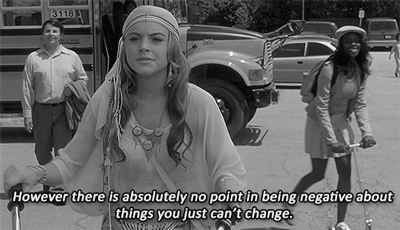
Or, worse, the Hippy Dippy Nonsense genres that encouraged the youth to remain ignorant Sheeple With A Death Wish like Jackass or Gossip Girl
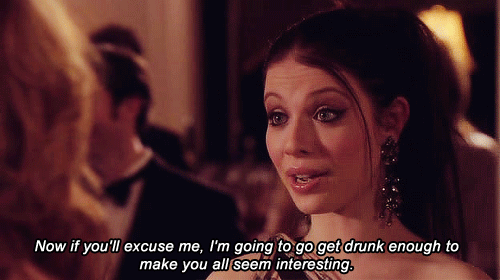
Despite how that sounds, he wasn’t a condescending prick. He was a good man with very high standards for media that he came off as a snob. Because he was. A snob. With so much nerd rage. That’s what made us bond.
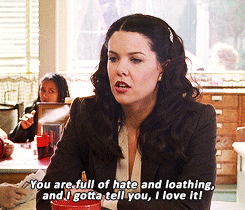
You see, I’m a snob too. I had to be. I am the daughter of immigrants. And I grew up during the Bush Administration.
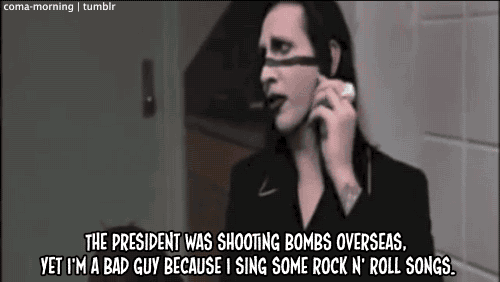
I grew up during a time of Prop 187, El Nino, El Morro, Thalia Y Tomy Motola y el secuestro, Pasale Paisano, anti-Cuba sentiment, Fake News, Columbine, Hanging Chads, 9/11/01, Pseudo-Fascism, WMDs, Jingoism, Patriot Acts, They’re Gonna Follow Us Home, Shakira, Katrina, George W Bush Hates White People Kanye Scandal, Militia, NRA Guantanamo, Dixie Chicks, A Day Without A Mexican, Selena the Movie, El CHupacabra, End of the American Dream, Once In A Lifetime Breaking News TRL Britney Once In A Lifetime Civil Unrest Breaking News Breaking News Narco Corridos Breaking News Miramax Breaking News Anthrax Breaking News Marylin Manson, Las Hijas De Juarez, Eugenio Derbez, La Escuelita, Los Tigeres Del Norte, Los Tucanes De Tijuana, Napster, Metallica Some Kind of Monster, Bono, Apple, Pixar, MySpace, AIM, new tech every 6 months, cell phones, Reggeaton, Walter Mercado Primer Impacto, American Idol,
To boot, I am the daughter of immigrants. Who were hyper-Catholic. And narcissists. And abusive. And alcoholics. Who were allergic to stability, progress, open-mindedness, or anything conducive to raising children in a global crisis.
So I had to be selective about the media that I consumed. Because my mother was a Batman Villain, my paternal-figure was a reluctant father unwilling to abandon his fuckboi ways for his family, and my brother and I were left to our own devices to figure out how to raise ourselves and our parents. We sucked at it. And years later we are paying for trying.
So, while navigating the highs and lows of our own puberty-induced hormonal roller coaster, we had to think quick and raise our 2nd-adolescence shit show of a parental unit.
We were parentalized. I didn’t know it at the time, but that is what happened to us.
What I did know at the time is that I needed to figure out how to live. Come up with a division of labor within the family unit and ensure that everyone played their role. You know, like the mother typically does.
And in order to play my role, I had to be studious of this different culture. Not just American culture. Not just teen culture. Not just Mexican culture. But all of them. Somehow, I had to find a way to navigate life. Since the age of 9 years old.
It’s exhausting having to be the adult of the house. I did not have a chance to be a child. Or matter to anyone. So I learned to matter to myself.
I learned not to trust anyone to be part of my support system because the people who were supposed to show me what that looked like were emotionally unavailable. And they stubbornly refused to divorce because that would mean they had failed their culture and religion and would be ostracized from the communities made of individuals they hated but stubbornly worked to impress and fit into.
And that meant that I befriended a strange array of really awesome people who made me feel seen and heard and understood. Like this Santa Clause-looking white dude with a motorcycle fetish and a kind touch with prepubescent girls with culture shock and daddy issues. Best of all, he was genuine. And sweet. And not at all inappropriate with children. That’s not sarcasm. He was not inappropriate with me or anyone else that I knew of. He truly was a great teacher.
Which is why I tried to keep in touch with him long after 6th grade. He was a computer nerd and introduced me to the wonder of the internet. And internet humor. And being opinionated. He was my Big Guy Bow Tie.
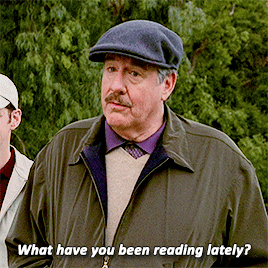
His opinion meant so much to me and I wanted to please him so badly.

And not once did he cross a line that would make it harder for me to thrive and move past the other trauma I was being exposed to.
How sad that I feel compelled to reiterated that he never diddled me. Sad for his reputation and sad that I have come to terms with how vulnerable I was to predators.

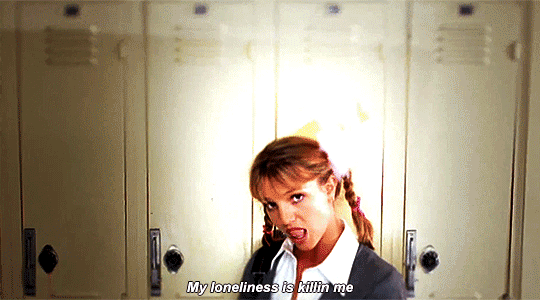
He was a real one.
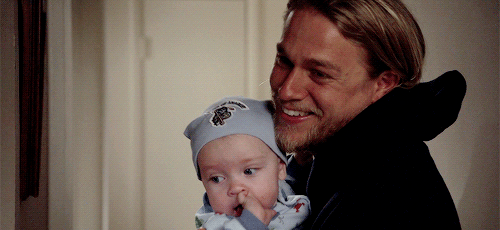
I knew that my feelings were not normal in the broader sense of the word. But I understood that it was all I had to work with and make magic with it. So I figured out that I would have to be very guarded and selective with my time, effort, and social circle. Which often meant I was the smart young adult in a group of what I thought were sophisticated adults but were really ghost of my future if I did not get past my daddy issues in a healthy way.
By the time I got to high school, I was the weird kid
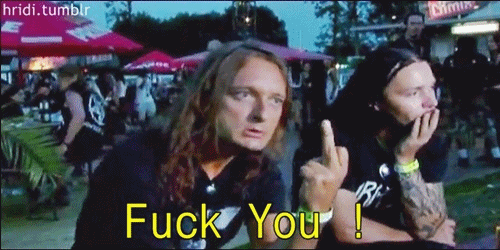
I had no idea how I got there. But I had to figure out how to follow my passion without wasting my potential.
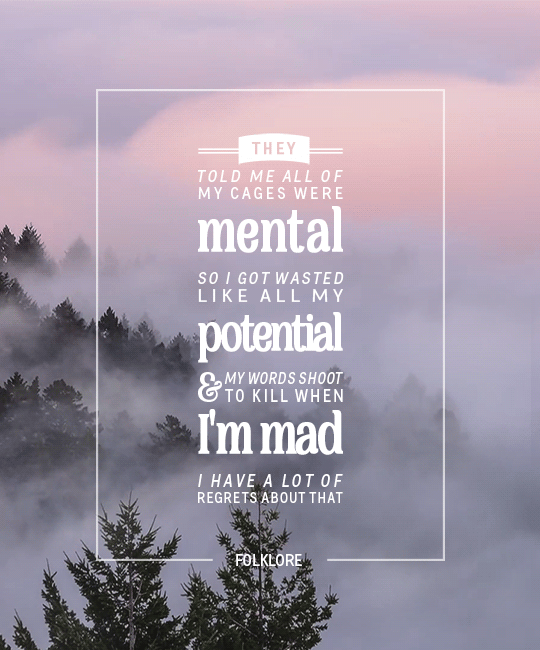
My passion is art. Specifically, music. But in general? Art. Books, Poetry. Knowledge.

And because that wasn’t complicated enough: I was discovering my own sexuality.
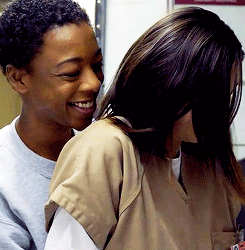
And the first born first generation Mexican American with hyper Catholic parents.
I may as well have come out as a supporter of the Axis of Evil

They would never understand that I was ACTUALLY part of the Axis of Awesome

They would not understand. It would be lost in translation
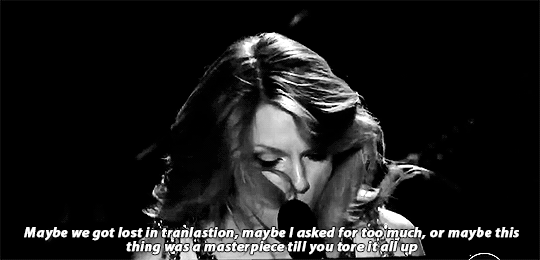
So I had to learn to be silent with my truth. Forever hiding in the shadows and wondering when my life might begin
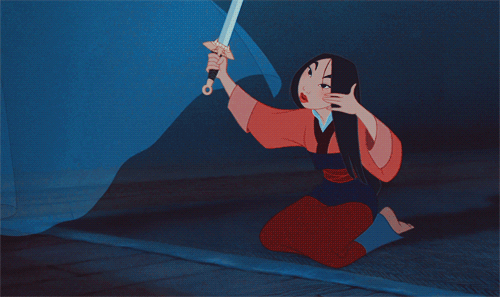
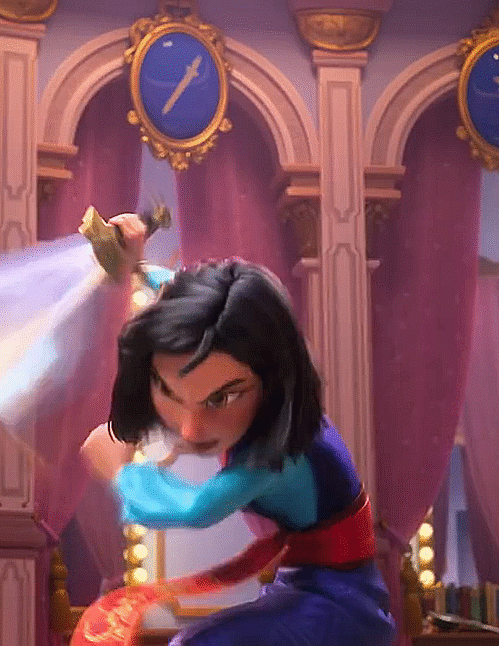
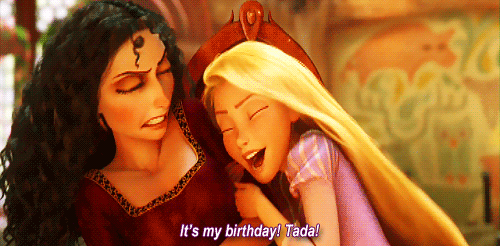
It began when I learned that the library was my escape. That I could learn about anything I wanted with very basic tools and that my ingenuity would get me far
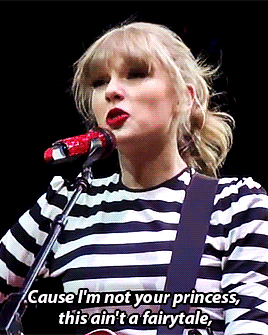
But what does any of this have to do with Remember The Titans? Or Black Lives Matter?
Well... everything.
Because in addition to my parents being old fashioned and abusive, they were also closet racists. I had to teach myself not to ingrain their prejudices as I trusted them to keep me alive. I had to walk a very fine line between Daddy’s Girl and Daddy Issues. A fine line between Mommy’s Little Princess and Mother Knows Best and No The Fuck You Don’t.
And I managed to do that with the renaissance of black content creators in the early 2000s. Remember the Titans was a favorite of mine.
Little did I know
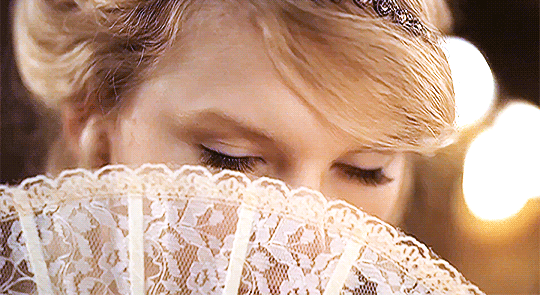
I was teaching myself to experience different cultures without appropriating them. I found what I was into and I immersed myself in it.

But I hid it. I silenced my opinions and tried to keep the peace. For the sake of my family.
That did not work. Shocking.

But I was left with the realization that even though my effort was wasted with my nuclear war of a family, I learned valuable lessons that I taught myself. Including that Black Lives Matter, anyone who has trouble acknowledging that needs to grow the fuck up and learn something cause we’re running out of time and ain’t nobody got time for ignorance an fear with a mad man in the white house.

And I don’t want to miss out on my life simply because I come from dysfunction and am constantly playing catch-up to understand what normal is and how to achieve it
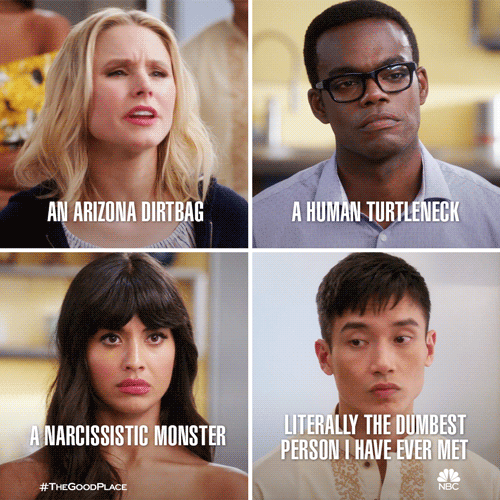
I am not alone in this. I come from a generation of American children who learned to cope with complex issues of race, politics, satire, drugs, over-medication. self-medication, financial irresponsibility, weaponized faith and ignorance. It was the dawn of the age of the Basket of Deplorables. And Millenials were caught in the crossfire. I was caught. And I learned. Black. Lives. Matter. Women have voices and opinions that matter and a feminine point of view is crucial to the success of any business endeavor. I taught myself feminism and committed to its intersectionality before I knew it may be a word the dictionary I owned was missing. I learned that words matter because language has power. I tasted the crispness of that juicy apple from the tree of knowledge. And I wanted to marinate in its juices until i was good and goddamn ready to be tasted and known myself.
Oh yeah, I learned my Daddy Issues manifest themselves in a need to sexually please emotionally unavailable men.
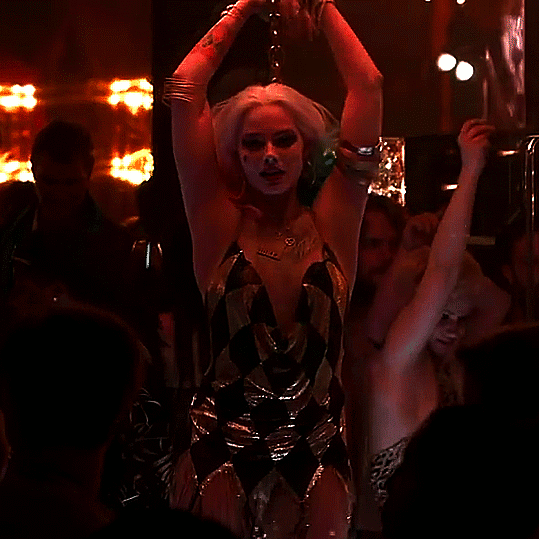
So I chose as wisely as I could. You know, what with the inmates running the asylum
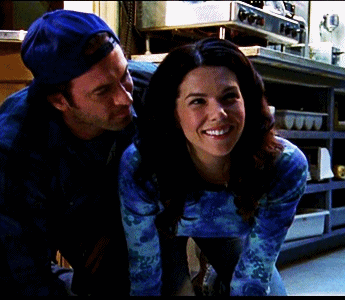
But my god am I into drummers! And linebackers! And Cheating Ass Marine Motherfuckers With Secret Families in Portland who Ghost a Bitch Just When She’s About to Fall!!!
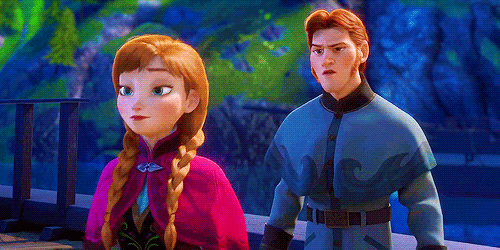
My picker is off. I learned that phrase from Loveline. Another resource in my quest to exist in my natural state

Having to twist myself into a pretzel to please the un-pleasable was unsuccessful.
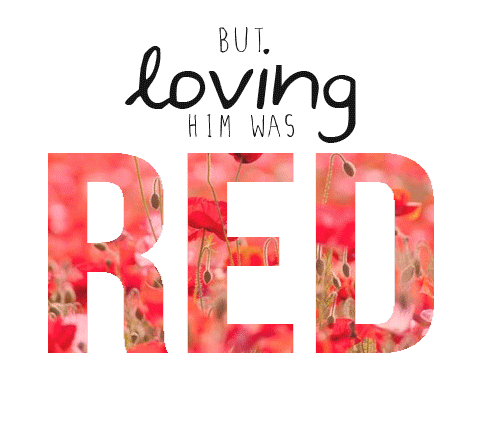
So I stopped and focused on my real family. My chosen family. Those who care if I live, die, have food and rent money, and ask me to text them when I get home so they know I am safe. Those people. My people. I go hard for them. And they are various heights, weight-classes, political affiliations, complexions. because I learned that black lives matter. As well as Asian American Lives. And Migrant Lives. And Femme Lives. And LGBTQIA+ Lives. In essence, ALL LIVES MATTER INCLUDING BLACK LIVES. Because life is too hard in it’s natural state to be excluding people from We The People. Because the America I Still Believe in does not allow for any of this maga shit to stand
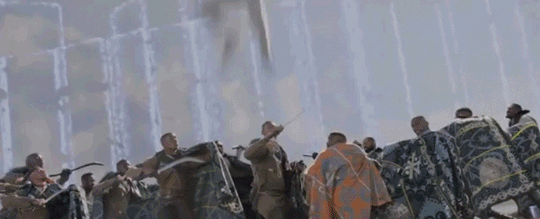
Because we need to be allies for each other against the real danger to this country.
Internalized Systemic Racism and how it has been exploited to separate the working classes in a strict divide down socio-economic boundaries that are not easily crossable. This phenomenon is often called a glass ceiling. Minorities are particularly affected. But that doesn’t mean that all white people are to blame or responsible or immune. You see, I’ve read the Handmaid’s Tale.
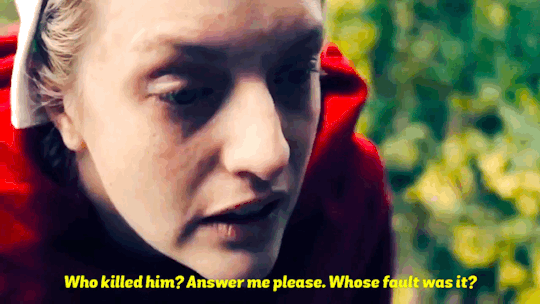
And while everyone is looking at the Scarlet Robe of the Handmaids and the Serene Teal of the Wives, no one looks at the EconoWives. Wife Trash, I suppose.
Much like the Titans’ football season. High school seniors in a recently-desegregated town. Sounds like the plot of a Disney movie or a Based On True Events TV movie
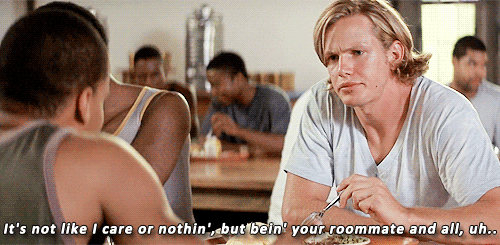
Gee... I can’t imagine why I related to this...
But I did and I learned from it. I learned that it takes effort to make a champion. And it is not accomplished alone. And while the odds may be ever against you
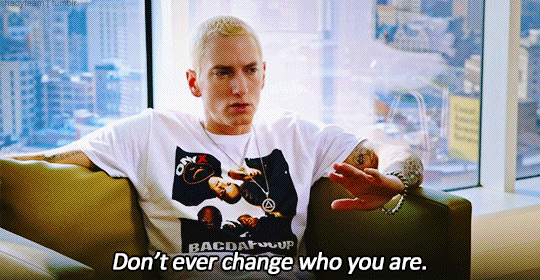
You have to decide what matters to you. And if that is football, you listen to your brothers on the team and keep your circle small.
And if that is closet-cases that fear for their safety when outed
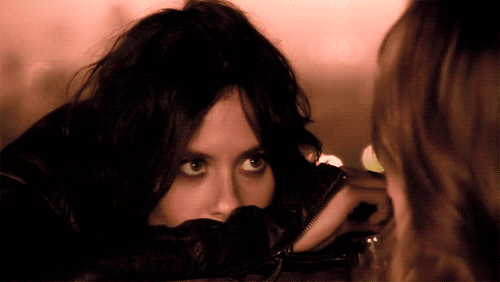
And if that is a mother at 9 years old because that is how old you were when you realized you were more emotionally intelligent than your own pathetic excuse for a mother who is really a batman villain who you will later turn into if you don’t watch out for the stalker tendencies now and your fuckboi father who still cheats on your mother because this is a pity marriage that neither of them are ready to end even though everyone would be better off, especially your brother who is a precious little squish but being psychologically handicapped by the Stephen King Novel raising him and who is so much like you but you won’t know that for several years because you’re just a child and what do you know what normal is or is not supposed to feel like...

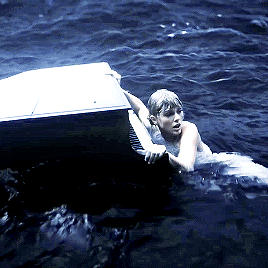
Then that’s just what the fuck it means.
My therapist asked me how I’m doing in 2020 with my depression and the isolation and what I think about the protests.
Like if the logic behind the protests was up for debate. Or if it was a political statement rather than a statement of human compassion and empathy to say that
Black
Lives
Matter.
I guess she hasn’t seen Remember the Titans
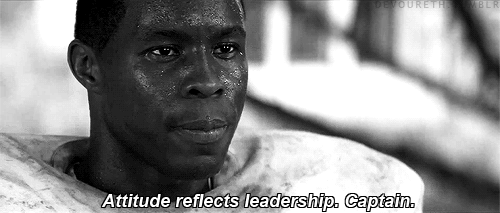
0 notes
Photo

ESCAPE FROM BAGHDAD! BY SAAD Z. HOSSAIN
T. S. MILLER
ISSUE:
6 APRIL 2015
With an unembarrassed exclamation point to punctuate its classic pulp adventure title, Saad Z. Hossain's explosive first novel announces itself as something other than entirely serious. But readers in the early 21st century immediately understand that the desire to escape from Baghdad is the desire to escape from an unending nightmare, a geopolitical cataclysm that cannot be reversed—and perhaps can only be laughed at. Self-consciously outrageous and at times silly to the point of becoming sophomoric, Escape from Baghdad! achieves its true emotional impact through expressions of genuine wit bound to powerful meditations on the inanity of war, and on the special inanity of a particular 2003 war.
Of course, Hossain is not the first novelist to approach the traumas of armed conflict with a strong sense of the absurd—Vonnegut and Joseph Heller will spring to mind as obvious precedents—but, if a single modern war deserves to receive this kind of darkly satirical treatment, it would certainly have to be the Iraq War. Although I doubt that, for example, Hossain's farcical depictions of the dysfunctional bureaucracy of the American military command bear any resemblance to historical fact, these scenes finally seem no more outlandish than, say, Dr. Strangelove's portrayal of the same dysfunction, and operate similarly as a critique of power and violence. In terms of both sheer hilarity and profounder insight on war, Hossain's novel never quite rises to the heights of a Slaughterhouse-Five or Kubrick's inimitable melding of existential terror and absurdist humor in his 1964 film. Even so, Escape from Baghdad! remains an honorable new entry in this same tradition, and also refreshingly brings us a war story that focuses largely on civilians, civilians who, for instance, find that their financial assets have become "fictional" (23), and whose interpersonal relationships dissolve into nothing as family members become collateral damage and neighbors and acquaintances of all kinds begin to doubt one another's allegiances. Hossain ingeniously links the brutal chaos of post-invasion Iraq to the carnivalesque as a mode: a nation at war is necessarily a world turned upside-down, so why not turn it over to a few drinking, swearing, and wisecracking Lords of Misrule?
The opening chapter introduces us to Kinza and Dagr, two black-market "purveyors of medicine, gossip, diesel, and specialty ammunition" (9). The former is a natural criminal, and the latter an unassuming professor of economics who is still able to playact, when some American infantry grunts come knocking at the door, "the exact composite of the innocent Iraqi these farm boys from Minnesota had come to liberate" (12). These soldiers strike Dagr as "big, idiot children [ . . . ], capable of kindness or casual violence as the mood took them, unreadable, random, terrifying" (12), an assessment perhaps not so different from the standard portrayal of the Iraqi Other in recent narrative treatments of the war as an unpredictable, even capricious unknown, a generous and smiling ally who might reveal a suicide vest at any moment. One of the great achievements of the novel lies in Hossain's ability to find plausible threads that unite all of the very differently motivated and differently professing groups occupying the contested space that is "postwar" Baghdad. The novel's main American character, Hoffman, is just as aimless and self-annihilating as the Iraqi civilians who have lost their old lives, and is unpersuaded by the lofty rhetoric of his own high command and the jingoism that carried his nation into yet another Middle Eastern war. A fellow black marketer himself—a "market parasite" (10), as Dagr would say—Hoffman declares himself nothing but a "cog" in the American war machine (75); although he becomes, nominally, a commando on special assignment to hunt down weapons of mass destruction (what else?), he remains content just to get by. In the past, Hoffman has helped protect his friends and business partners Kinza and Dagr from the American military, but their entanglement with a high-profile political prisoner whom they have "inherited" necessitates a quick departure from their old black market beat (9). This prisoner, Hamid, becomes an unlikely third wheel on Kinza and Dagr's mad flight out of Baghdad: we learn that Hamid, as a part of the ancien régime, had been a "star striker on the torture pitch" (9), but was not deemed sufficiently important to the Americans to merit inclusion in the famous deck of 52 playing cards (he might rank about 56th on the list, we hear). But Hamid can offer Kinza and Dagr something that they desperately need: a destination to give their journey purpose.
The plot takes innumerable twists and turns as the characters weave their way past official checkpoints and across hostile Baghdad neighborhoods, such that it begins to take on an almost labyrinthine shape—not by coincidence a recurrent architectural motif in the novel. In fact, new plot developments often carry the novel into entirely new generic territory, resulting in a rich collision of genres. Hossain alludes overtly to Dumas, the Sandman comics, medieval alchemy, and Greek mythology, but also mashes up private military contractors and secret police with djinni and semi-immortal magicians; cryptographic police procedural with twisted buddy comedy; hallucinogenic drug trips with a healthy dose of Islamic occultism; and the science fictional possibility of life extension via telomere manipulation with an enigmatic alchemist named Avicenna, a Rappaccini in his desert garden. And, at one point, we turn a page and suddenly find ourselves on the island with Dr. Moreau. I suppose we could attempt to pin down the genre of the novel as a kind of highly ecumenical urban fantasy, but the novel doesn't simply examine the legacy of the Iraq War using the lens of urban fantasy. Instead, in some way it posits the Iraq War as urban fantasy, an intimate rather than epic space in which layers of suppressed history combine with widespread irrationality to produce a simultaneously surreal and very grittily realistic experience.
Or perhaps the medieval romance is the historical genre that best matches the shape of Hossain's narrative, even a specifically Arthurian strain of romance. After all, Kinza and Dagr agree to take on various quests even before medieval alchemy and its promises of temporal riches and everlasting life become more central to the plot. Hoffman, too, leaves on his own perverse version of a Grail Quest, seeking the WMDs that would finally justify the Iraq War to the international community and to the individual consciences of the "boots on the ground" that he represents. (He doesn't find any.) Kinza's whimsical acceptance of these quests—as well as his increasingly irrational, borderline suicidal devotion to completing them despite increasingly adverse circumstances—can then be understood as part of his efforts, as a hero of a neo-chivalric romance, to cobble together a crude code of honor: "I said I'd kill this man, and so I will" (31); "He [Kinza] was manic about words once uttered and would never, could never, back down from a declaration like that" (87). Above all, Kinza's pseudo-chivalric quests and oaths reflect a desire to impart meaning on his hollowed-out shell of a life, in a bombed-out city, on a perpetual battlefield that, as readers in 2015 can't help but remember, will remain a battlefield for years to come, an unstopped arterial flow of new horrors.
As the pages turn, the novel's emphasis on the American occupation fades as the supernatural and the science fictional dimensions of Hossain's world rise to the surface: we come to understand that the American invaders had blundered into something they didn't understand here in Baghdad in many more ways than one. But Escape from Baghdad! is far from merely a one-dimensional critique of the American invasion and occupation: the Iraqi characters can become victims of self-delusion just as easily as an American colonel (or president). For instance, a local thug, sensing a power vacuum that he imagines he could occupy, "began to remember additional truths" about his role in various conflicts, "giv[ing] birth to a new truth" (89). Every side in every conflict proves as self-deluded and self-deluding as the next, and—the events of the novel taking place in the immediate aftermath of the Iraq War—there are many sides and many conflicts. By and large, the novel does not delve too deeply into the particulars of any given group's ideology, and indeed seems curiously uninterested in religious difference as a contributor to ideological difference, despite the constant reference to Sunni and Shia populations. With the important exception of the self-admittedly fanatical imam/strong man Hassan Salemi, the other characters, major and minor, tend simply to scoff at the idea of a God. Hassan, by contrast, becomes a kind of God-lashed Ahab, and Hossain creates an especially vivid image of murderous fanaticism as that which reshapes the world "into a single terrifying image, like the barbed tongue of a lion scraping off the ghostly remnants of fur, skin, and meat from bleached-white bone" (156). More usually, the novel sacrifices a more probing analysis of specific ideologies for a more detached satirical take on the observable effects of ideologically motivated violence: its most felicitous phrase may be "confused gun," a weapon passed through many hands, issued and reissued by various military bodies that may even be in conflict with one another (11). This intriguing concept also suggests the extent to which the individuals involved in the Iraq War may themselves become reduced to tools wielded by larger institutions, confused guns all of us.
But does this jumble and juxtaposition of different speculative genres and different literary modes hold together in the end? For the most part, Hossain demonstrates good sense in knowing when to dial up the humor to bitingly sharp satire, and when to preserve the high seriousness appropriate to certain scenes of violence. Despite the new absurdities that crop up every few pages, the novel contains several gripping portrayals of brutality, and is capable of inspiring real terror. For this reader, it was actually the humor that sometimes fell flat: for example, the stray weak lawyer joke; some excessively puerile banter in the Hoffman-focused chapters; and a handful of crass asides about rape, homosexuality, the mentally ill, and certain ethnic groups. Finally, the grand conclusion of the novel, an extended action sequence that would be the envy of any director of a big Hollywood action movie, also failed to meet the expectations raised by the rest of the book: the great crescendo to which the novel builds turns out not to be philosophical or satirical, but simply action-packed and explosion-filled. In the novel's last lingering scenes, is Hossain reveling overmuch in the violence and hero-narratives that his novel elsewhere dissects and critiques so well? In spite of some such imperfections and distractions, Hossain has succeeded in producing a haunting portrait of a city and a populace rich in history and potential for the future, but trapped in a long moment when tragedies and traumas could make it easy for anyone in Baghdad to feel, as Dagr does, "unmoored from either past or future" (52). The novel encourages us to escape from—or challenge—the nightmare of the present with the aid of comedy: on the subject of war, one character memorably quips, "[t]he important thing is to have a sense of humor about it" (59). Escape from Baghdad!, by turns infectiously riotous and deeply disturbing, has left me pondering just what possibilities adhering to this advice might offer us going forward, and what it might distort.
0 notes
Link
The Untold Story of Fahrenheit 451
Those who know me know I’m a little obsessed with dystopian fiction. Yet I often find people are surprised when I say Fahrenheit 451 is one of my favourite books of all time. For many this book was either a little boring or not that great. The biggest complaint is one that, in my opinion, is highly reductive: ‘the only message of the book is that censorship is wrong’.
So many of Fahrenheit 451’s messages sadly remain untold stories. It’s rich in astute observations and couched in a beautiful language that sprawls across what is actually a rather enthralling plot. There’s so much more than simply burning books.
If 1984 warns against militant jingoism, Fahrenheit 451 warns against that one might call ‘jingleism’. There’s no better way to convey what I mean than with the ending of a speech from our antagonist, Captain Beatty:
“‘Books cut shorter. Condensations. Digests. Tabloids. Everything boils down to the gag, the snap ending.’
‘Snap ending.’ Mildred nodded.’”
The inhabitants of this society have very limited attention spans where all they care about is the snap ending. And as if to prove his point, the wife (Mildred) of our protagonist (Montag) repeats only his last two words. Mildred—along with everyone else in society— lives in a world of jingles: a world of catchy expressions, of short sharp snap endings.
Beatty acknowledges that boiling everything down to the gag results from the proliferation of entertainment and the population boom. With more people and more entertainment, time pressures squeeze entertainment to a pulp. From the pulped pile of books emerged attention-grabbing, simplistic jingles. What’s disturbing is less the abstract potentialities this represents, but the concrete realities it mirrors: this is hardly an unfamiliar story. In Australia, one immigration policy was simply the three word slogan, “Stop the boats”. What makes this so dangerous is that it is presented without any nuance or rational argumentation.
People often don’t follow leaders or policies because they’re good—but because their jingle rouses up a mob mentality. In an analysis of Trump’s speech, linguists have found a particular prevalence of repetition and polarisation—out with external discussion and nuance, in with forceful catchphrases and divisive black-or-white viewpoints.
Bradbury warns against a populace cognitively incapable of tuning in for anything longer than the snap ending—for the catchphrases. They haven’t the ability to hear nuanced arguments, they can only hear the jingle.
Politically, poisoning its inhabitants with jingleism allows the society to be utterly repressed. As Beatty goes on to explain in his characteristically wonderful way, one need only “whirl man’s mind around so fast under the pumping hands of publishers, exploiters, broadcasters, that the centrifuge flings off all unnecessary, time-wasting thought”. And with thought out of the way, Beatty and the rest of the leadership becomes unaccountable— people are not only unable to think for themselves, but they’re incapable of engaging with anything which isn’t catchy.
Everyone in the society becomes reduced to the mental capacity of an infant, and the rulers can do what they want. The extremely stupid population simply don’t engage with politics—they have no awareness, never mind any say.
It’s tempting, as with much dystopian fiction, to frame this in Orwellian terms—the big bad oppressive authorities reduce the population to shrivelled wrecks to cement their power. But there’s no explicit authoritarian or morally flawed goal underlying all of this. Bradbury himself claims it’s “less about Big Brother and more about Little Sister”. Contrary to the reductionist claims I so often hear, this isn’t really a story of the political elite exploiting the masses via censorship. In fact, this is a story where the masses subjugate themselves in the name of happiness— something we, as much as they, value. And that is the real reason this is so scary.
Bradbury’s society is full of people who have corroded their own mental capacities, stopped thinking, and thrown themselves into chains. This regression, of course, is symbolised by the banning and burning of books; books, after all, are a symbol of thought and of patience. Most disturbingly of all, we learn that “‘the firemen are rarely necessary. The public itself stopped reading of its own accord.’” Authoritarian oppression is not required—society represses itself.
Total annihilation is the ending to this particular tale. Sadly, such an ending doesn’t seem so far from reality. Lockdown is our own dystopia and has shown us how dangerous ignorance can be. But again, people wrongly appropriate the military themes of 1984 to Fahrenheit 451. In 1984, war was a constant, purposefully forced upon the cultural consciousness. But in Fahrenheit 451, we barely see the war. The people are like pacified babies—incapable of thought and emotion, they are utterly ignorant of the threat.
The most powerful message is the problem with jingleism on a personal scale. What is humanity worth if not for thought and emotion? The characters of Fahrenheit 451—with the exception of the charming Clarisse, discerning Beatty and a few others—are utterly vapid. When presented with poetry, Mildred’s wife and her friends burst into tears. They sit all day in a room with 4 massive TV screens for walls, and at night they use “little Seashells” in their ears. Bradbury would be rolling in his grave at the development of earphones, iPhones, and virtual reality.
Television, for Bradbury, represented the short-term anaesthetic pleasure that leads to an inescapable unhappiness. It’s the easy way out; the choice not to love. Partially from a fear of pain and partially from the evolutionary need to pay attention to the loud and the bright, we choose to bury ourselves in click-bait YouTube, mind-numbing TV series, and attention-grabbing headlines. Beatty—as we’ve come to expect— summarises nicely: “‘Life becomes one big pratfall, Montag; everything bang, boff, and wow!’”
Soon, people lose the ability to sit down for a few hours to read a good book. As we fill our lives with more and more ostentatious entertainment, we neurologically lose the ability to engage in less stimulating activities—our brain either wants brazen vulgarity, or it goes to sleep.
For me, Fahrenheit 451 cautions us not to lose our humanity in the name of happiness. It cautions us not to subjugate ourselves by becoming intellectually infantile. There’s an underlying smugness to the allegation that the book is just about censorship—'we don’t censor, we don’t burn books’. Even many who claim to love it “fail to notice it’s we TV watchers who are the villains”, as Steve West notes. Maybe my fear is confirmed by the fact that so many have such a superficial reading of Fahrenheit 451. That’s why I think it’s a story worth telling
#Fahrenheit 451#untold stories#dystopia#dystopian fiction#fiction#speculative fiction#1984#oppression#repression#humanity#OC
0 notes
Video
youtube
CALIBRE 50 - CORRIDO DE JUANITO
[6.86]
Norteno's biggest stars - more hashtags, more T-shirts, less controversy
Alfred Soto: An embrace of identity without a trace of jingoism, "Corrido de Juanito" depends on the sweetly modulated trill of that accordion.
[7]
Stephen Eisermann: A terrific Norteño track detailing the life of a man who crossed illegally and his life through his eyes. This song hits harder and hurts more because of the current climate we live in, and coming from a family where both of my parents were raised in Mexico and my maternal grandfather told us he crossed illegally by hitching on to the bottom of a train this feels all too familiar. Fortunately for me, my family taught me Spanish first and made sure to always remind me and my siblings/cousins that we were Mexican-Americans, but Mexican first and to never lose that part of our heritage. I am so thankful they did that because I know far too many people who, like Juanito's children in this song, have shed their culture and language and have trouble empathizing or even communicating with their adult, Spanish-speaking parents. It's all frustrating and sad, but the call out to the numerous crosses in the desert near the US-Mexico border is especially devastating when you've heard about those crosses before in your life. Even so, the song manages to end with Juanito committing to see his dying father one last time, throwing caution to the wind, knowing damn well he missed out on so much of his family due to his longing for a better place -- one he freely admits wasn't all that it was chalked up to be.
[10]
Ian Mathers: Certainly this kind of narrative is, for lack of a more graceful phrase, on the right side of history, but it oompahs along with the kind of folk-music stateliness that both makes it feel more Important, even a bit timeless, and sucks some of the life out of it. Not that a song like this needs to be "fun," but it doesn't need to be so pokey either.
[5]
Josh Langhoff: Despite its #MexicanoHastaElTope kicker, Calibre 50's latest immigration story sounds more defeated than immediate precursors like Adriel Favela's "Me Llamo Juan" (everyman comes to the U.S., struggles through poverty and odd jobs, starts successful company) or Calibre's own "El Inmigrante" (everyman comes to the U.S., suffers various humiliations, starts successful string of "-ado" rhymes). It also sounds more defeated than Sparx's chipper Clinton/Zedillo-era ranchera murder ballad, but we'll say their "Corrido de Juanito" is not a precursor, at least until Calibre songwriter Edén Muñoz corrects me. The defeat resides partly in Muñoz's melody, rising hopefully before collapsing into perpetual sighs; partly in the slow tempo and settled-in length, unusual for a radio corrido; but mostly in Juanito's sadness at missing his family and feeling like an outsider everywhere, even around his own English-speaking, El Norte-born children.
[6]
Crystal Leww: To the surprise of my friends who watch streaming numbers, Latino acts sometimes rack up crazy numbers on YouTube. This is surprising, until you consider just how many people are in Latin America. Calibre 50 are one of those acts that rack up crazy views on YouTube, and it reminds me of a time when I was a child running around neighborhoods in Texas. This is music meant for a different time, or at the very least with a grill going.
[4]
Rebecca A. Gowns: Listening to this song puts a lump in my throat. It's the story of my family; the story of Los Angeles and the people who live here; the people in my neighborhood of Echo Park, some of whom have lived here through generations of Mexican-Americans, who are feeling the squeeze of pressures on all sides. The rent is too high here and the wages too low. English is incredibly difficult to learn, let alone to speak without an accent. Immigrants want to live with other immigrants and 2nd/3rd generation Mexican-Americans, we want to have our community, but our communities are being increasingly displaced by corporate interests and yuppie landlords. And yet, in many cases, there's nothing to return to in Mexico -- the wages are even lower, the opportunities even less. So one has to stay and make do with what one can, hundreds or thousands of miles from the land that's embedded in the soul. Calibre 50 manages to get all this across in much fewer words than I can, with an economy and grace of storytelling that comes from the richest depths of folk song tradition. I only wish anti-immigration ideologues could learn Spanish and hear this. I want them to feel the lump in the throat, the pull at the bottom of the gut, the cactus needle pressing against the heart.
[10]
Edward Okulicz: This is a lovingly written emotive song, and sung richly, but the real power didn't become apparent until I read the translation. "My children are big...they do not speak Spanish" says one verse, and that section makes sense as a poem, as if to assert one's Mexicanness is half pride in one's identity and half ruefulness in seeing that identity not passed down, or passed over by your children. That reads incredibly sad, but doesn't sound it to me. As a non-Spanish speaker, the fault's with me for hearing the accordion and gently oompahing rhythm as a sting of pain that time or liquor might heal, over a song about a sadness that I don't think ever heals. Some may cry to it, I can only sway.
[6]
[Read, comment and vote on The Singles Jukebox ]
1 note
·
View note
Photo

Wednesday, April 26, 2017
America is Only Human
By Stephen Jay Morris
©Scientific Morality
It’s vocabulary time. You are going to learn about a word, which is a noun: Anthropomorphism. What does that mean? Essentially, it means assigning human traits to inanimate objects—like a talking tree or a laughing house. Creative artists use this medium for compelling fiction. It’s routinely used in children’s books. If I were to give it a value judgment, I would say, “Cool, kids need imagination!” Well, how about for adults? Ah…let me think about it…What was the Supreme Court’s 2010 ruling in the case of “Citizens United v FEC”? Oh, yeah (stated succinctly): “Corporations are people.”
I don’t think Anthropomorphism is very healthy for adults. The righteous Right is very big on this and so are Conservatives. They don’t believe in “one nation under God,” they believe “America is God,” and it’s a very jealous God indeed. The Conservative brand of jingoism is very metaphysical. Maybe they never got over the childhood fairytales their parents told them.
I’m going to explain Right wing patriotism to you. At this point, a lot of critics would say, “You’re not a conservative! How can you explain something in which you do not believe?”
I would answer the question like this: I utilize what’s known as “Empirical observation.” I clearly hear everything they state and accept it, solely, by way of literal perception. This is not the same as “face value.” I am simply repeating that which I have heard after all of these decades. So, read on:
Conservative American patriotism is based on guilt. Here is prime example of that guilt as purported by the “abusive husband” analogy: The abusive husband always spouts this typical speech: “You are so lucky to be my wife. I gave you this beautiful house to live in. I bought you an expensive car to drive. You wear the best clothes that I pay for. You never have a hungry day in your life. You are so lucky to live in my household. Other households are inferior to mine. I have the best house in the neighborhood! So, if I slap your face, it’s because you made me angry. Don’t make me mad and we will get along fine.”
Here is a typical Conservative speech: “America is the best and greatest country in the world. You are so lucky to live here. America gives you so much opportunity and individual Liberty. Where is your gratitude? If a cop beats you, it is your fault! If you are poor, it’s because you are too lazy to work! Don’t make America mad and we will get along fine.”
Conservative Americans are too intellectually indolent to grasp the concept of country. They do not recognize that a country is not an ideology, but a geographical location. No matter how they pontificate about loyalty, they cannot propitiate the concept of to whom we are supposed to be loyal. To my knowledge, there is no such thing as “Americanism.” They claim that there is and, yet, when I question it, they tell me to read the King James Bible and the U.S. Constitution. Neither the ancient text nor that founding document speaks about “Americanism.” An intelligent person knows how to compartmentalize that which a nation is comprised of: wealth, government, religion, culture, the arts, military, ethnicity, race, and science. But to a jingoist, it is just one monolith, one entity; maybe some supernatural being.
So, if America is a person, what is its gender? Is it that of a macho man or a strong woman? What race? I know when some people refer to America, they use, “She.” Particularly military people, who vow, “I would die for her!” So, if America is female, then how can Evangelical Christians or Republicans be anti-feminists? After all, they want America to be a strong country; therefore, if America is female, they support a strong woman. Common sense, yes? Right-wingers should practice what they preach.
America must be a woman. Iconic American symbols such as the Statue of Liberty, or the Statue of Freedom atop the Capitol Dome, each depict a woman. So is America a “Motherland?” It’s certainly not a Fatherland! Oh, I forgot, the Neo-Liberals have renamed the USA, “Homeland.”
If ask me, America is just real estate and the ideology is up to Americans—its inhabitants.
And one more question for our Right wing opponents: Is it your position that National Identity is superior to Individual Identity? Then you must be in favor of multi-racial Patriotism.
Well, are you?
1 note
·
View note
Text
The Contextual Flashback 1: 2005 till 2014
Shaloo was four years old now and just beginning to go to kindergarten. In early 2006, Mahesh and Saraswati were blessed with a son whom they fondly named Brij, as an appreciation of the bridge of mutual love, affection, respect and trust they had been able to build amongst themselves. The same bridge they wanted now to be built between the brother and sister duo of Shaloo and Brij.
But, as Brij grew up, he spent a lot of time with Hussaini Bhai and began to love and enjoy his company. Hussaini Bhai, unmarried as such as he was, had a strong liking for children, especially boys. Very soon, Brij developed fascination for his Mamu Jaan’s cricket and often took sides on his behalf with the Pakistan team. Shaloo, on the other hand, vouchsafed for India, as did her classmates at the primary school she was studying in 2012.
A battle royal was always on the cards as Shaloo and Brij fought bitterly with each other over as trivial a matter as victory or defeat in cricket between India and Pakistan. This was much to the chagrin of their parents and their fond ambitions of building a bridge of brotherly and sisterly feelings of love and affection between them.
Very soon, Mahesh came to realize the significance of building a bridge between different faiths and various religions. Not only this, the bridge must be built between people all around the world irrespective of varied castes, races, colors, and so on. It had to be based on the most fundamental principle of the fraternity and brotherhood of mankind and the common fatherhood of the one and only one God. Once this significant and important bridge was built, all these problems of jingoism and fanaticism of any kind, may it be in cricket or anything else, would automatically be taken care of by themselves. If there are different religions, there are different rivers too – all falling into the same mighty ocean. Religion, in its truest and fullest sense must imply that all individuals, all communities, all races, and all nations develop the spirit of mutual brotherhood and comradeship, helping each other to grow to its fullest while growing themselves to the maximum too!
Ask any individual – “does he want to love or hate?” The simple and natural reaction would be to love and love more at that. The common principle of love works and operates behind every religion. How did it matter if different religious paths were propounded by different distinguished personages? They all had the sole agenda of wanting man to be God fearing and love each other, leading man to his ultimate realization of the self.
More often than not, religious issues are exploited by vested interests to “Divide & Rule” over people just as the British Empire did before our independence in 1947. Religion, of late, has become a major cause of vote bank politics and hatred perpetrated by the so called religious bigots to serve their own personal and selfish interests. We can easily see through their malicious designs and evil game plan when we analyze the whole situation with a calm and cool mind.
Does any religion teach hatred? The reply would be a most vociferous and emphatic ‘No!’ In fact, each and every religion stands for love, not for hatred! For any individual, religion is a matter of personal faith and belief. For any community, religion, in general, is a symbol of solidarity. But, for any nation of diversity, religion, most of the times, divides and cuts asunder the grassroots across the various communities, acting as a barrier to national peace and harmony.
However, does it always need to be so? No, the people of various and different religious communities can live together and co-exist in a spirit of mutual bonhomie, peace, and happiness, once they start respecting each other’s viewpoints, and rather than fighting over minor religious issues, learn to be tolerant and see different faiths akin to different colors of the same rainbow, bestowing upon it diversity amongst unity.
The current scenario in the world is another matter, though. People are fighting just not only over religion, but each and every trivial issue or little matter they can lay their hands on, be it caste, color, race, or even a game like cricket. While they are free to do so, they are forgetting just one and a very significant and basic thing at that – “the color of each and every individual’s blood on Mother Earth is ‘Red.’ In fact, individuals on this planet are akin to a bunch of roses, each with its own fragrance, its own brilliance, and contributing its own bit, be it small or large!”
“Alas, we have forgotten our very own self in the rather mundane race for name and fame!!” “If I were to describe all these goings-on of the mundane affairs of the world in one word, it would be simply ‘maddening’ or ‘baffling,’ if you would like it to be put that way” – thought Mahesh.
“After all, what does one gain by fighting over trivial matters and drawing out swords at the slightest provocation?” People have just forgotten to be tolerant of each other and lack the basic values of patience, fortitude, and humility. Ego clashes at the work place, while travelling in the buses / trains, or even at home, have contributed their own share in ‘spoiling’ the ‘peace’ of the world.
Furthermore, this sort of war-like explosive atmosphere and environs have added to the ‘tensions’ and ‘woes’ of the already ‘beleaguered’ modern era.
0 notes